IDIA AISIEN IDIA AISIEN
Will Not Stop Telling Impactful African Stories
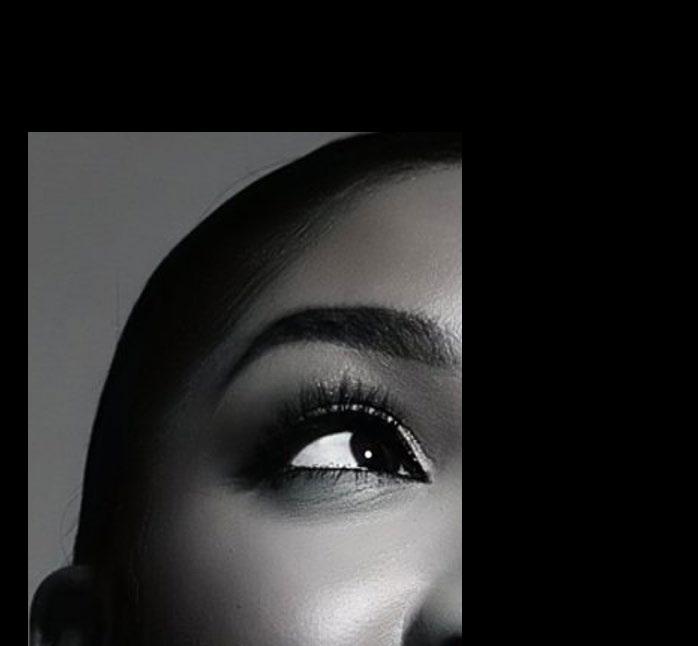
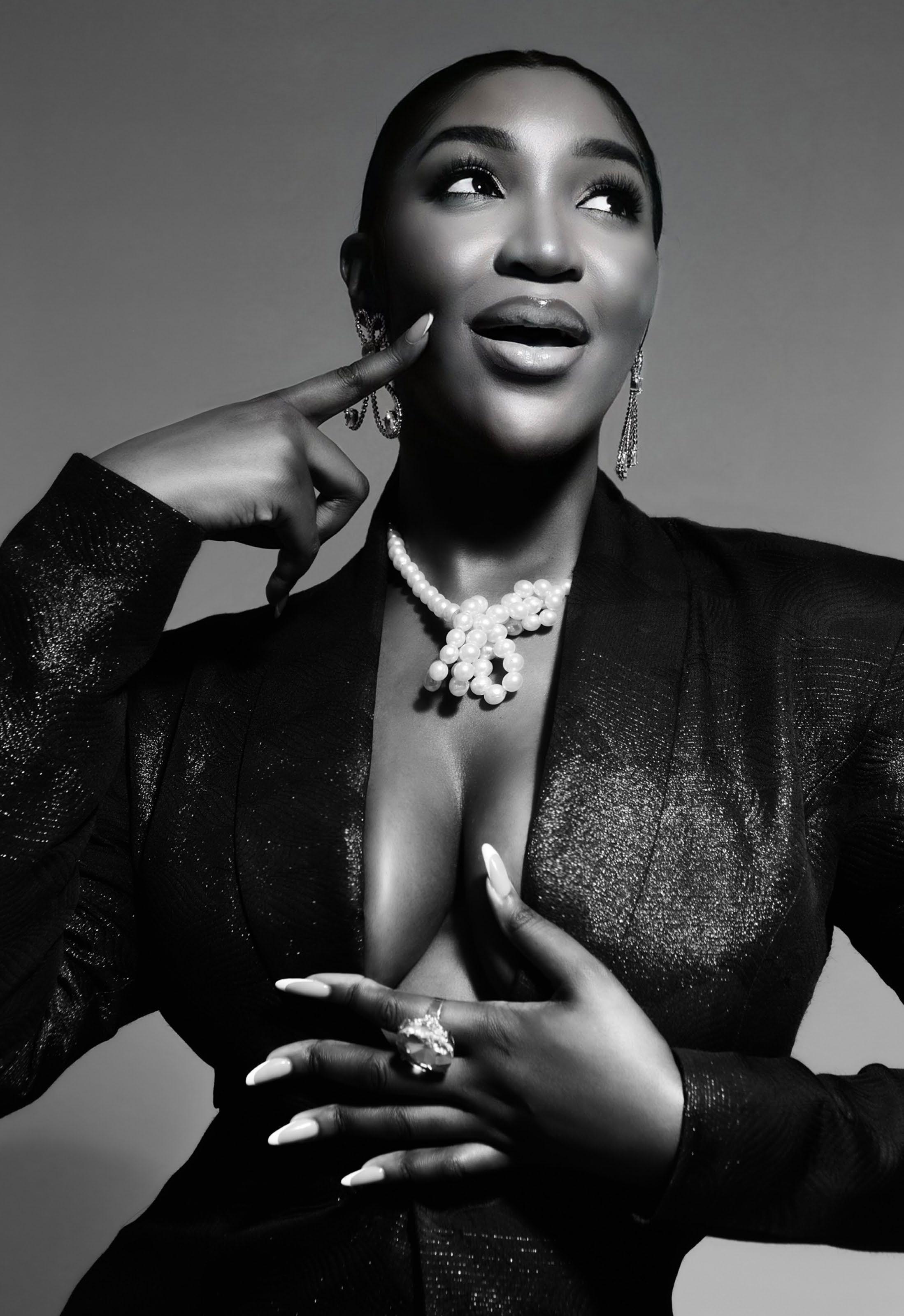
VOL 3 NO. 20 • MAY 14 - MAY 20, 2023
Where are we heading with food in the next twenty years? Research shows that we might be using insects as our source of protein and plant-based proteins. This could result from the increase in population, and to balance the equation, we might end up with things like 3D-printed food. With the help of biotechnology, we might also see personalised nutrition. Read all about these on pages 12 to 13.
Our cover personality would stop at nothing to become a journalist, but that wasn’t where destiny led her. From wanting to meet with Mo Abudu to interview for a job as a journalist, she ended up auditioning for a movie role which she didn’t pursue. Another opportunity arose for a movie, and she auditioned again, not taking it seriously, and she got the part. Since then, there has been no stopping her in the movie scene. Idia Aisien is undoubtedly making a name for herself, one movie at a time. Read her story on pages 8 through 10.
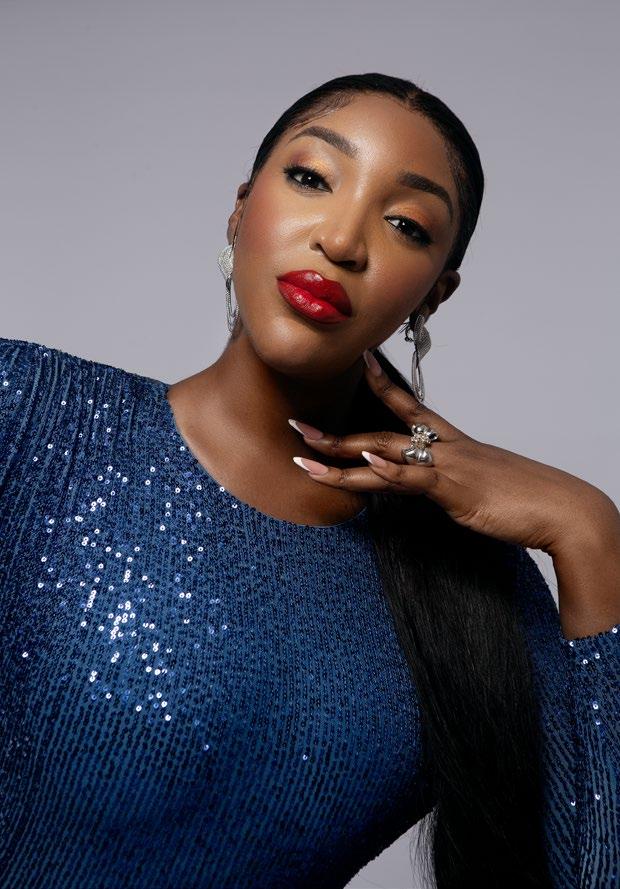

Can beauty routines help with better mental health? This week’s beauty article says so; you can find out how on page 14.
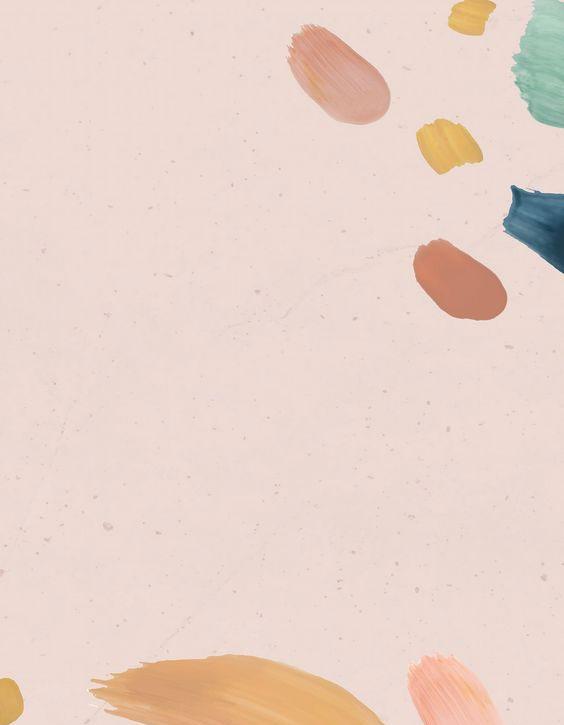
Downtown Confidential focuses on the science of sexual chemistry. This week, we discussed the different ways of finding out what turns each person on. It’s worth the read on page 7.
Are you scanning the QR codes on page 16?



Until next week enjoy your read.

AUSTYN OGANNAH PUBLISHER/EDITOR-IN-CHIEF
Editor: Onah Nwachukwu @onahluciaa

Editor-at-Large: Chalya Shagaya
Writer: Kehindé Fagbule







Graphic Design: Oludemilade Aremu
Digital Media: Oladimeji Balogun
Guest Art Director: Sunny Hughes ‘ SunZA’
Dorcas Akintoye
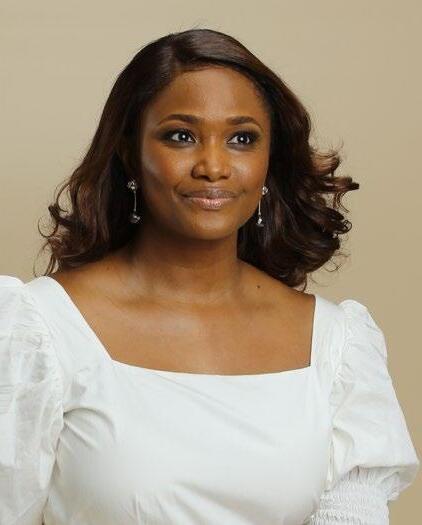
Dorcas Akintoye is a dedicated writer with more than 2 years prolific experience in writing articles ranging from food, entertainment, fashion and beauty. She has a National Diploma in Mass Communication from Kwara State Polytechnic, Ilorin. She loves writing, listening to music and playing scrabble. She is a highly-skilled, enthusiastic, selfmotivated professional writer.
Onwumere Churchill Ikenna
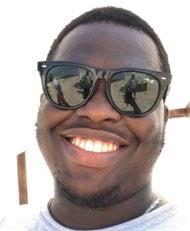
- Contributing Writer




Onwumere Churchill Ikenna is a writer, poet, digital and social media content strategist. An Afro gen z clan member of kenga media. He is a movie critic who was amongst those who birthed the first movie brand; Feeem house brand. A full fledged member of the writers space Africa, Nigeria district and was part of the editing team of the second anthology issue by the writers space Nigeria.
He has written so many articles, stories and e books. An avid reader and a freelancer. You can check out his literary editing page @coidencreatives on Instagram and twitter.
His personal socials for both Instagram and twitter are : @ikennachurchill

VOL 3 NO. 20 • MAY 14 - MAY 20, 2023 PAGE 2 THEWILL DOWNTOWN • www.thewilldowntown.com www.thewilldowntown.com thewilldowntown thewilldowntown @onahluciaa + 2349088352246 Onah Odun Ogunbiyi @oddbodandthecity - Contributing Editor Odunayo Ogunbiyi is an ex pharmacist with a passion for food and pampering. Writing about her exploits wherever in the world she may find herself is just her way of staying sane in this zany world. Boluwatife Adesina @bolugramm - Contributing Writer Boluwatife Adesina is a media writer and the helmer of the Downtown Review page. He’s probably in a cinema near you. Photo: Kola Oshalusi @insignamedia Makeup: Zaron CONTENTS The Pope’s Exorcist 06 8-10 16 14 15 12-13 11 REVIEW BEAUTY THE SCENE DOWNTOWN BON APPÉTITE QUICK CHAT LIVING COVER Get The Look: Livingroom Workstation My Home, My Office Idia Aisien Will Not Stop Telling Impactful African Stories The Science Behind How Beauty Routines Can Improve Mental Health Dr. Omotola Elatuyi’s 45 The Future of Food What Will We Be Eating in 20 Years? Quick Chat With Deeds EDITOR’S NOTE 07 04-05 FASHION The Role of Fashion in Promoting Body Positivity DOWNTOWN CONFIDENTIAL The Science of Sexual Chemistry
WHAT YOU SAID @art_timah @misscookey INSTAGRAM
Beautiful @frankiebloise
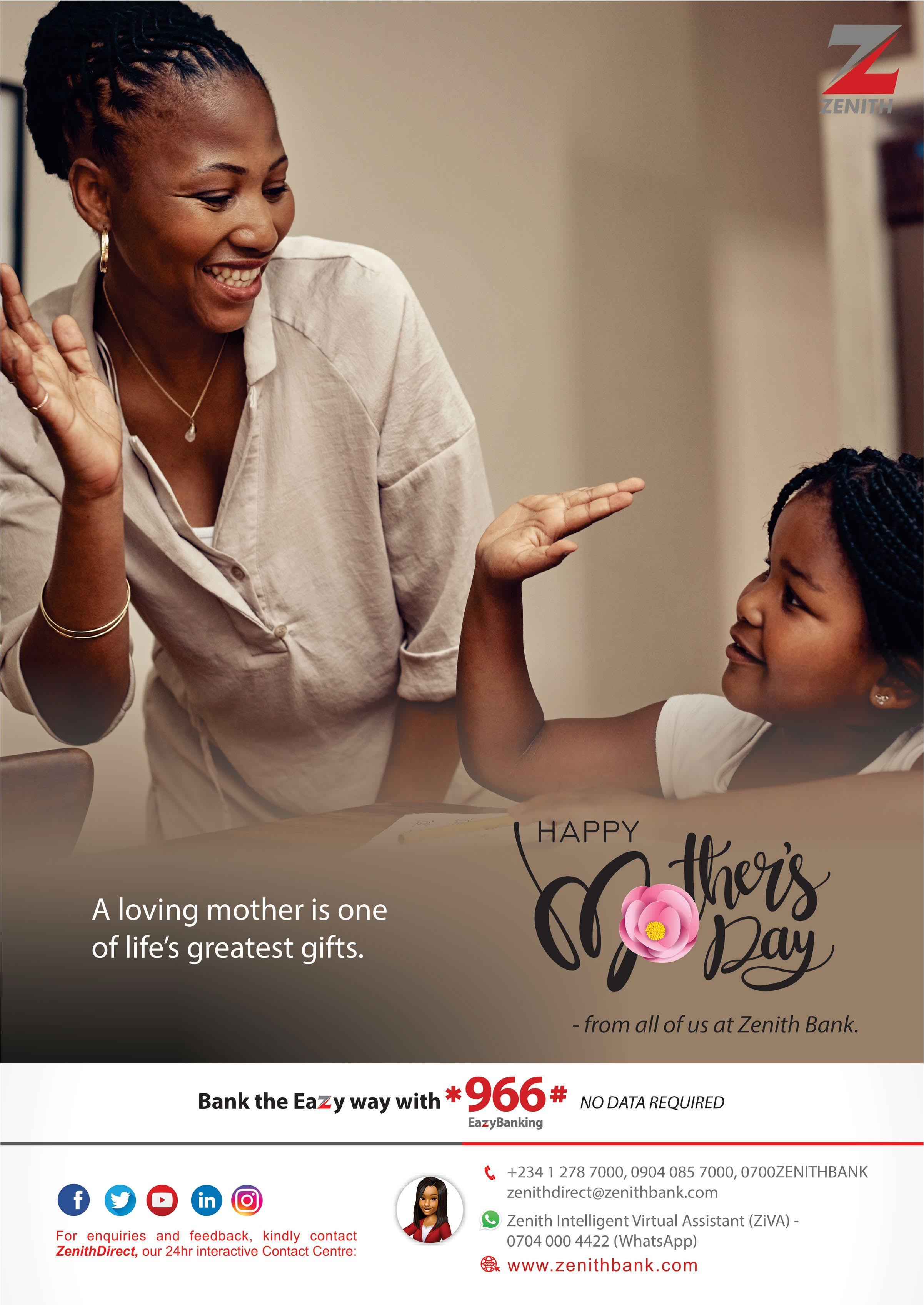
PAGE 3 THEWILL DOWNTOWN • www.thewilldowntown.com VOL 3 NO. 20 • MAY 14 - MAY 20, 2023
IN PROMOTING BODY POSITIVITY The Role of Fashion
BY DORCAS AKINTOYE
and body positivity are intertwined concepts that can influence each other in several ways. Body positivity is about having the mindset that all bodies are good bodies regardless of their size, shape, or even physical appearance. Body positivity can make people love themselves for who they are, Instead of feeling pressure from all angles to conform to unrealistic beauty standards set by society or even social media. On the other hand, fashion is an institution known for promoting unrealistic beauty standards. They do this by featuring very thin models and, sometimes, airbrushed to perfection. At the same time, fashion also plays an important role in promoting body positivity and challenging harmful beauty norms in our society.
Fashion
The relationship between fashion and body positivity can promote more inclusive and diverse representation in the media; it also goes as far as encouraging people to feel more confident and comfortable in their bodies. This week, we look at ways fashion can promote body positivity.
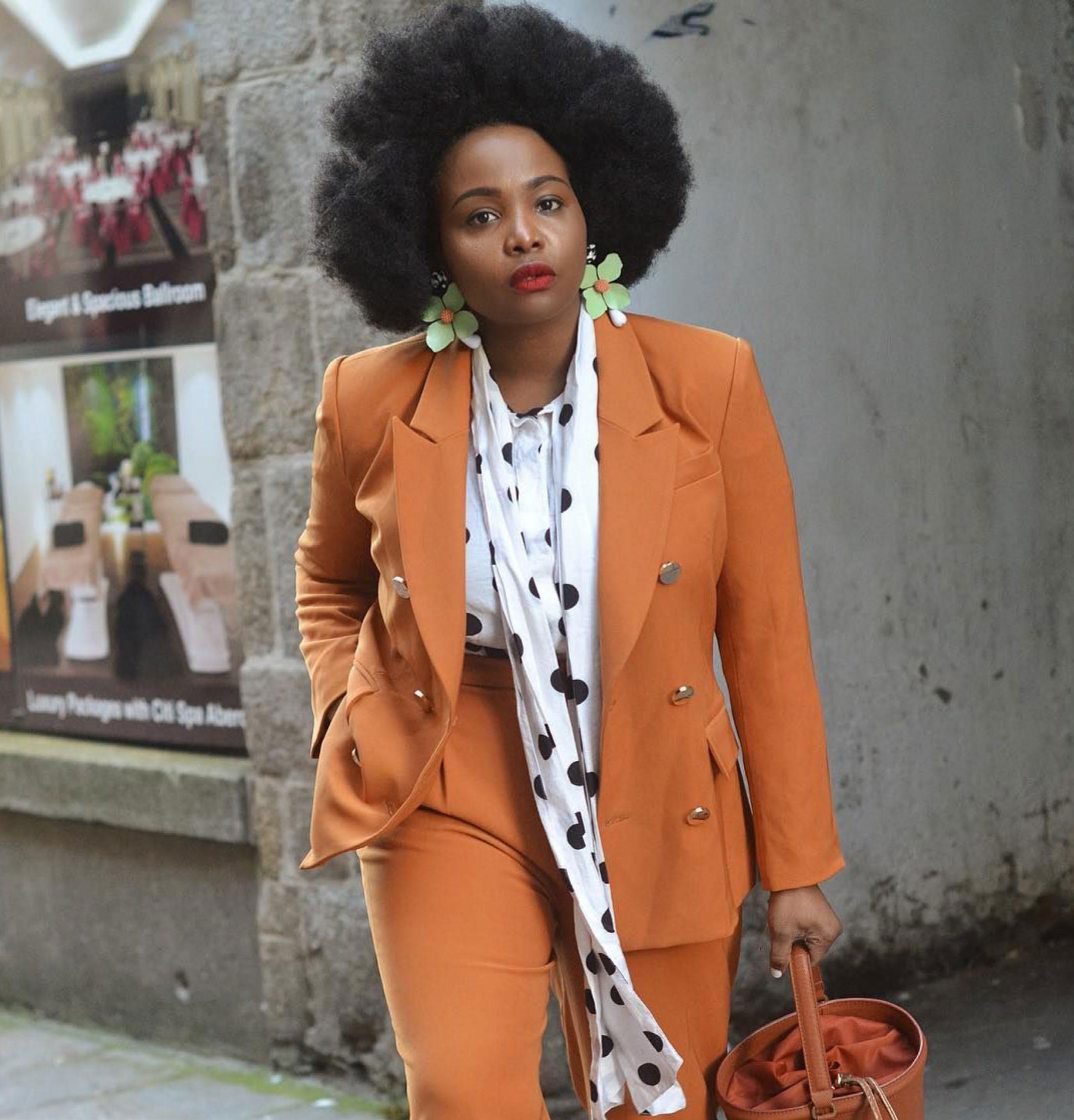
VOL 3 NO. 20 • MAY 14 - MAY 20, 2023 PAGE 4 THEWILL DOWNTOWN • www.thewilldowntown.com FASHION
SIZE INCLUSIVITY

Fashion brands can promote body positivity by creating clothing that accommodates all body types, including plussize individuals. By doing this, they play a part in promoting inclusivity and diversity while encouraging people to feel more confident and comfortable in their bodies.
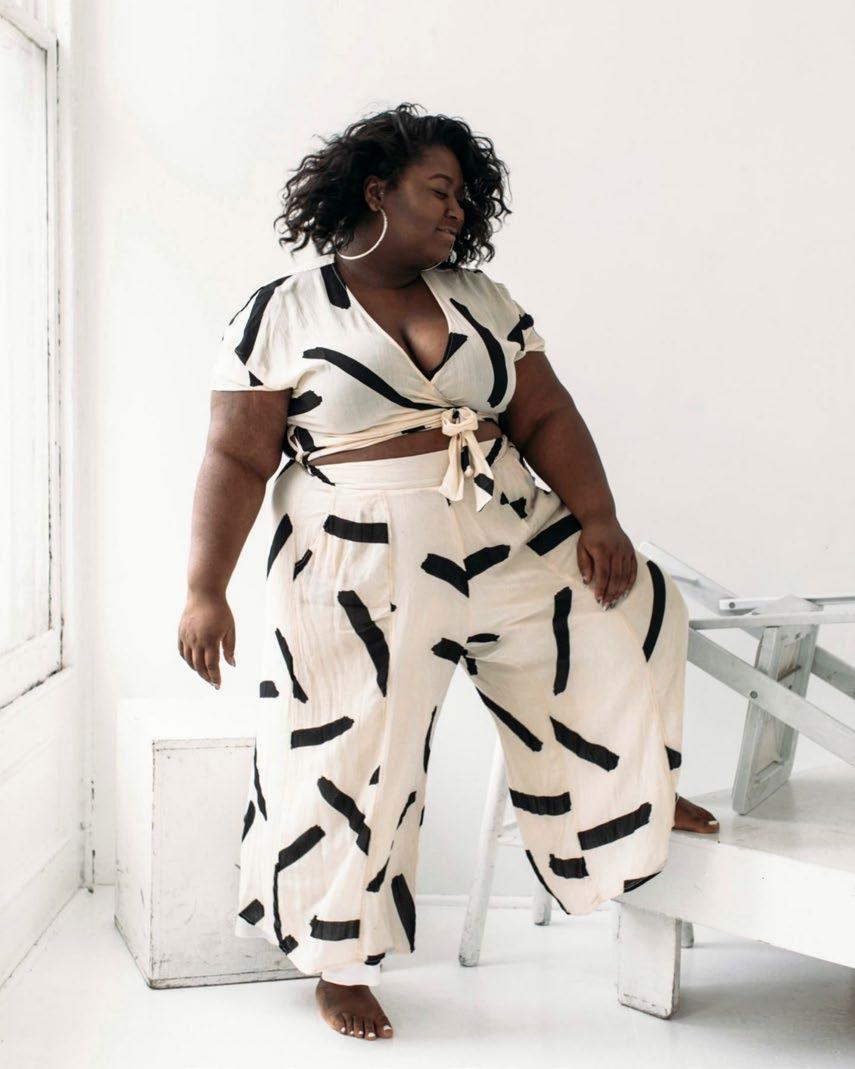
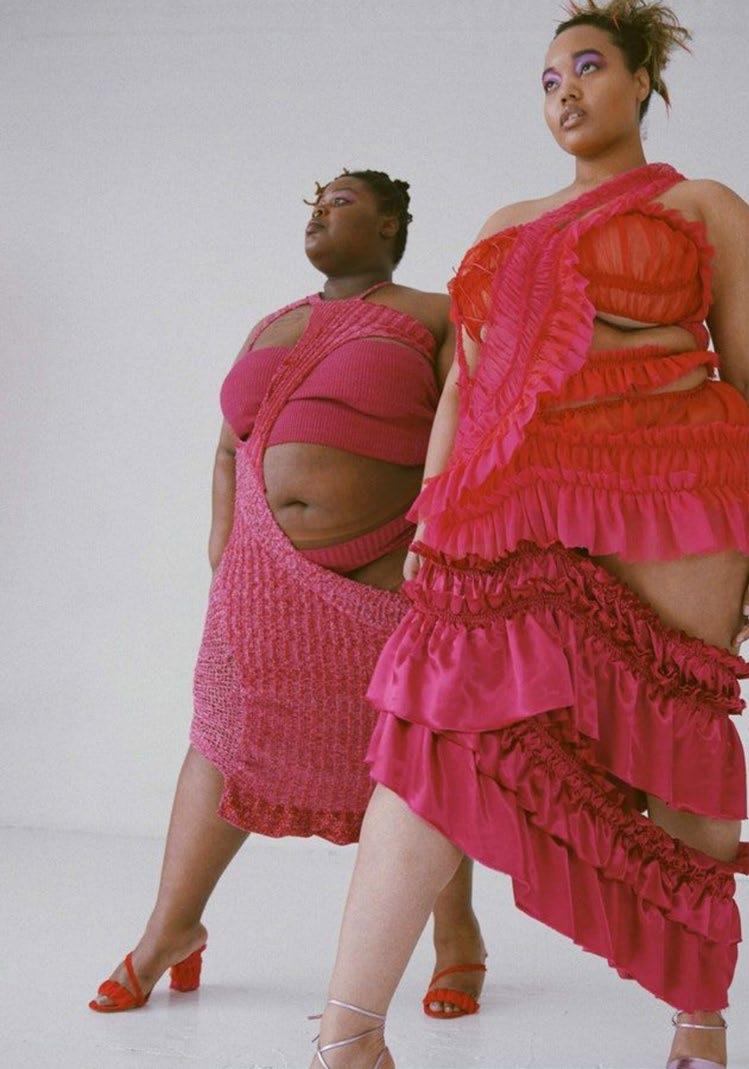
1 3
CELEBRATING DIFFERENCES
One of the ways fashion can celebrate individuality is by promoting a wide range of styles that cater to different tastes and preferences. This helps remove the mindset that there is only one “correct” way to dress while encouraging people to embrace their unique sense of style.
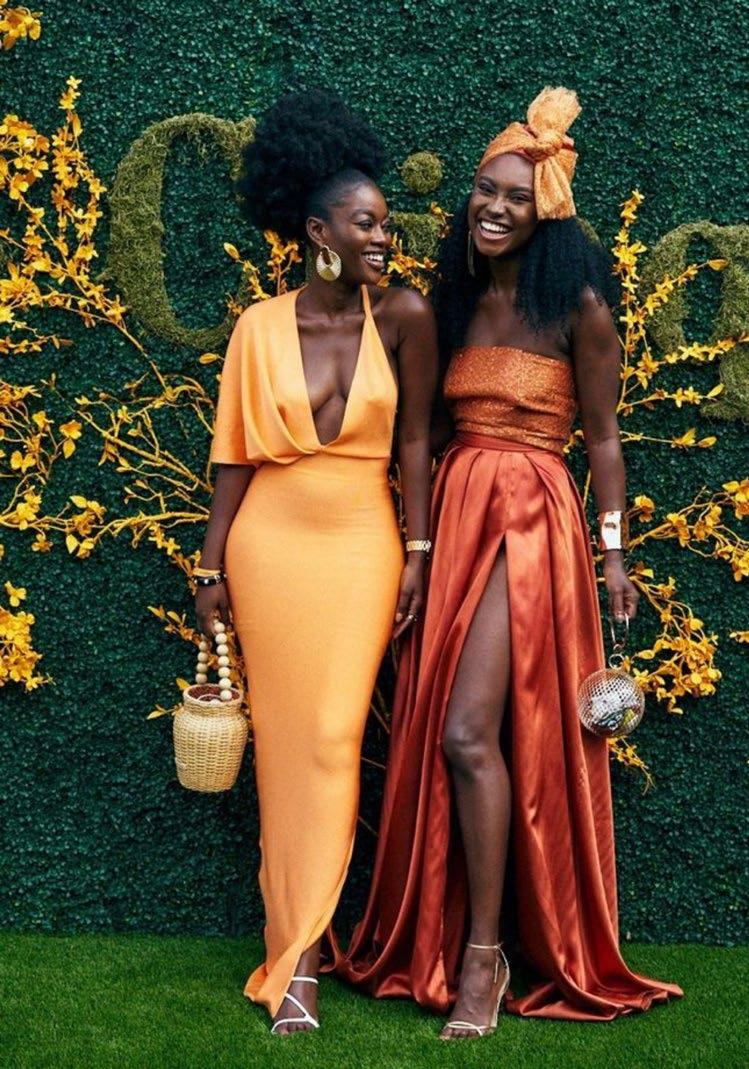
2 4 5
EDUCATION AND AWARENESS
By promoting positive body image through messaging and branding, fashion can raise awareness about body positivity and challenge harmful societal norms. They can do this by using tools like social media, advertising campaigns, and other marketing efforts.
DIVERSITY IN ADVERTISING COMFORTABLE CLOTHING
Fashion brands can promote body positivity by featuring models of all sizes, shapes, and ethnicities in their advertising campaigns and runway shows. This can help in breaking down the narrow beauty standards that have been upheld in the fashion industry.
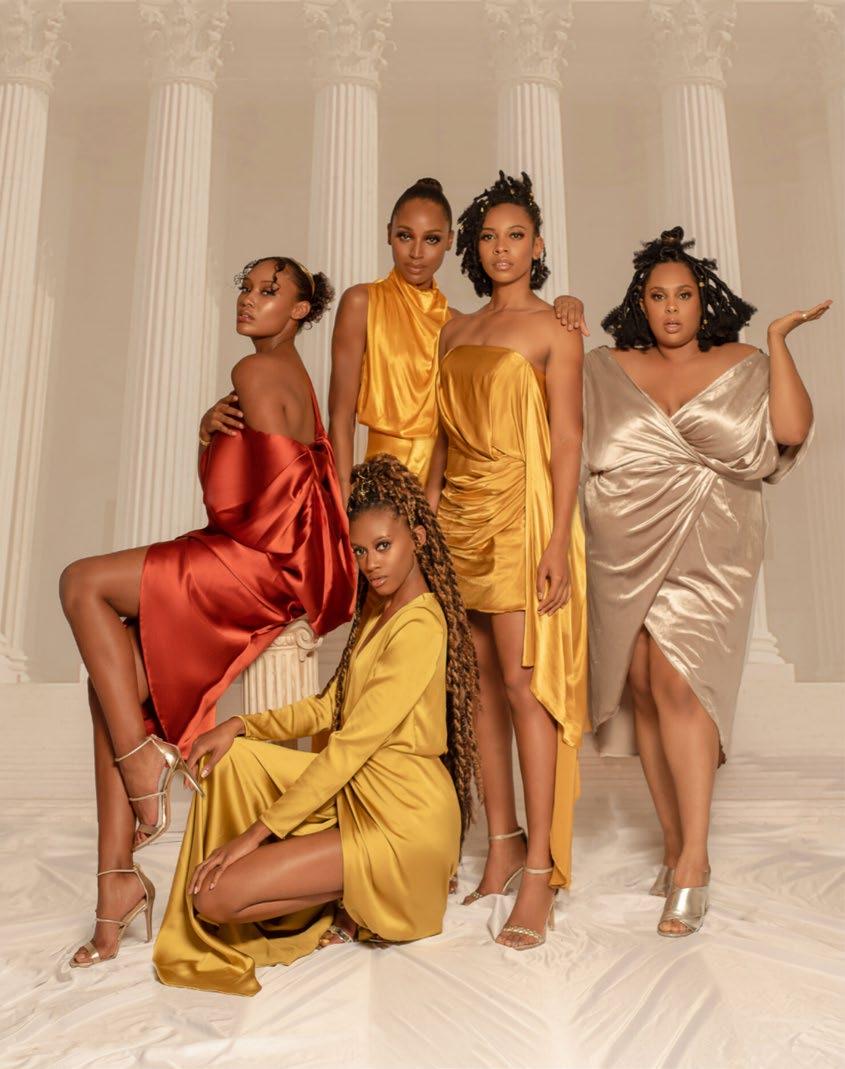
One of the ways fashion can promote body positivity is by creating clothes that are comfortable and easy to move in, regardless of their size, shape, and physique. This will go a long way in helping people feel at ease in their bodies and boost their confidence.
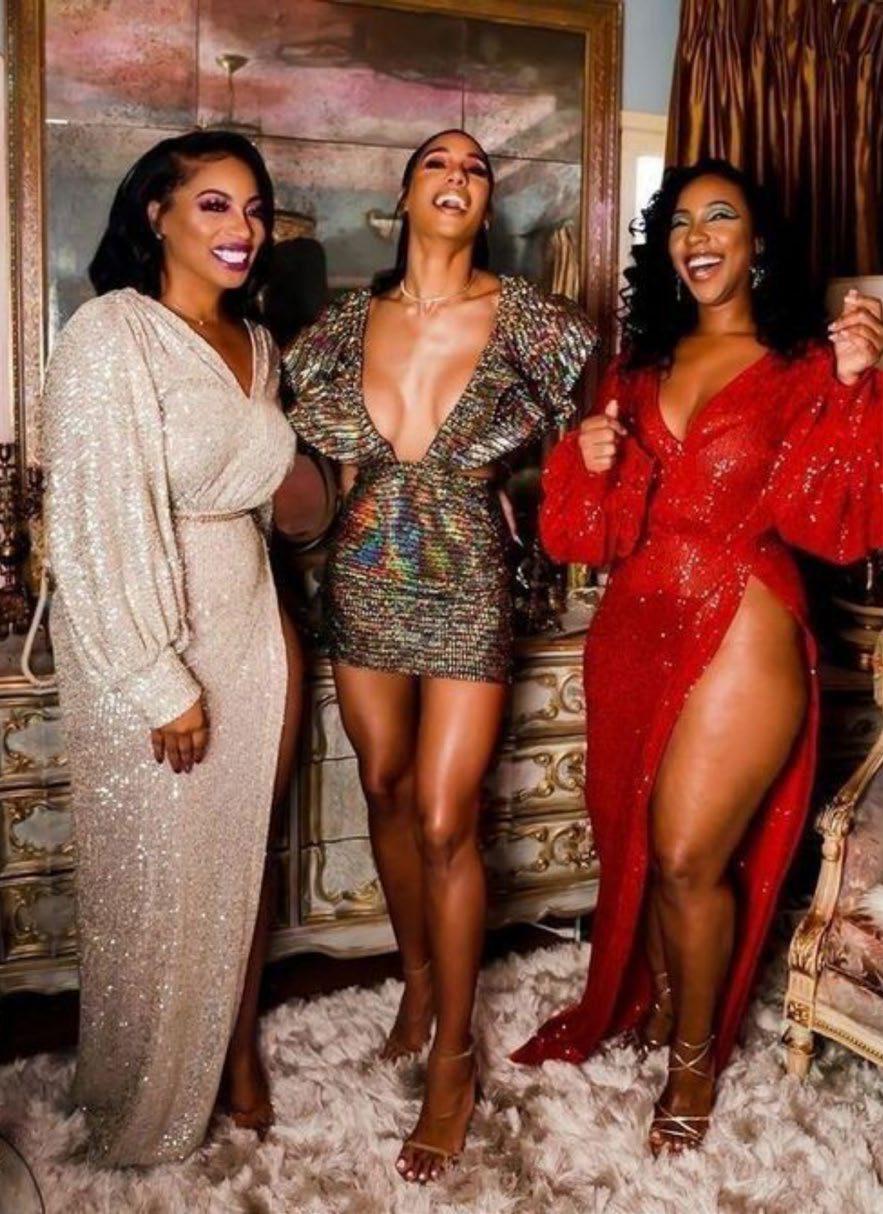
PAGE 5 THEWILL DOWNTOWN • www.thewilldowntown.com VOL 3 NO. 20 • MAY 14 - MAY 20, 2023
FASHION
Above all, fashion has a significant role to play in promoting body positivity by embracing diversity, promoting inclusivity, and encouraging selfexpression.
Asmore and more people are working from home, the lines between our work and personal lives are becoming increasingly blurred. One way to combat this is by creating a designated workspace in your living room. But how do you go about designing a workspace that is both functional and aesthetically pleasing in your communal living area? In this week’s edition of “Get The Look,” we’ll explore creating a workspace in your living room that is conducive to productivity, while still maintaining a comfortable and stylish living space.
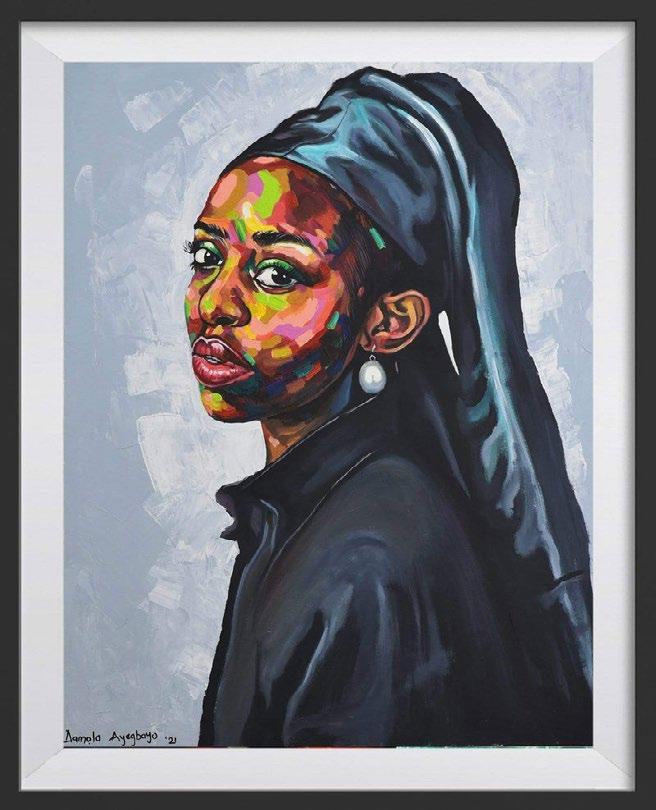

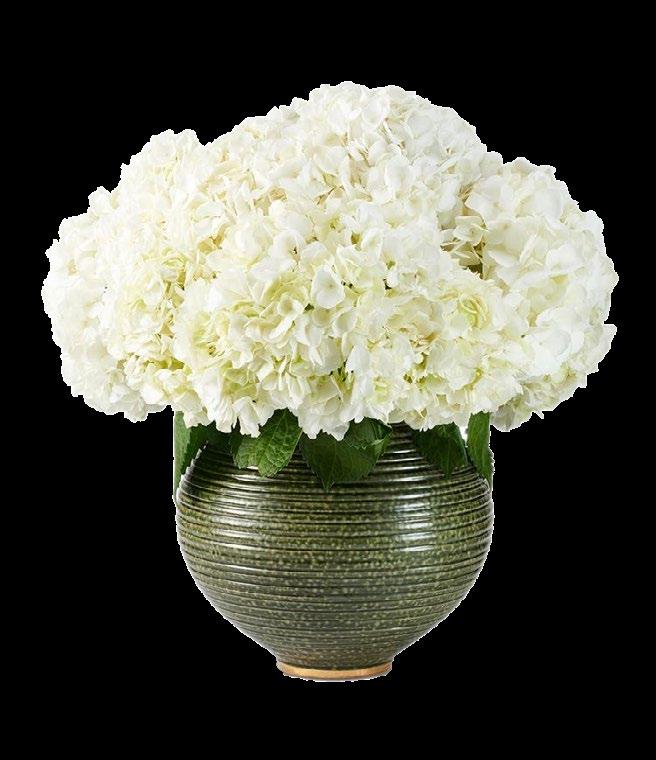

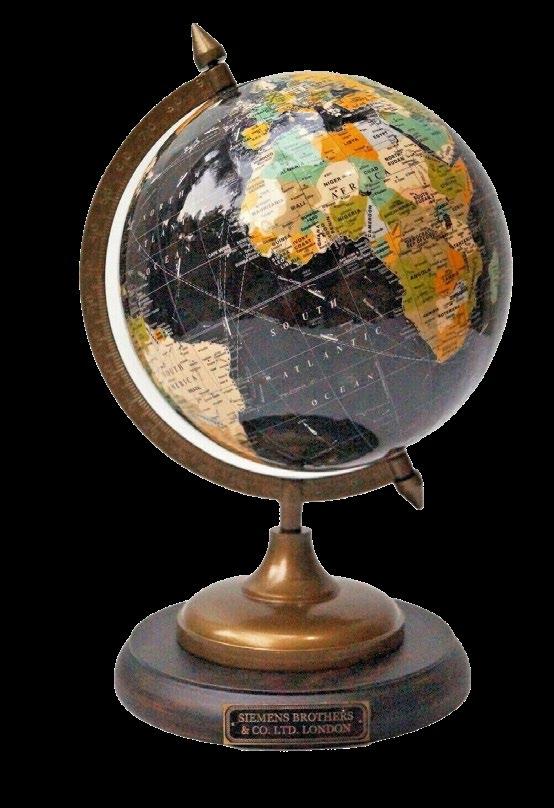
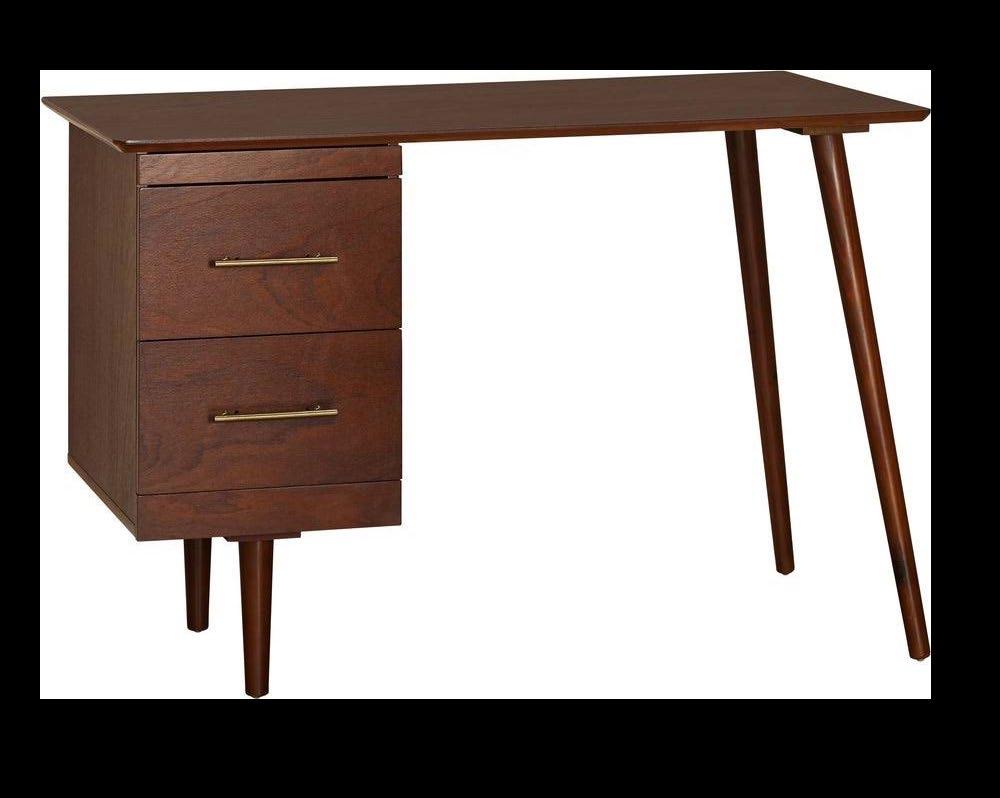
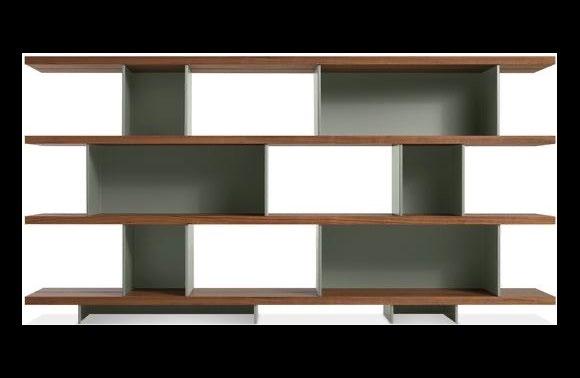

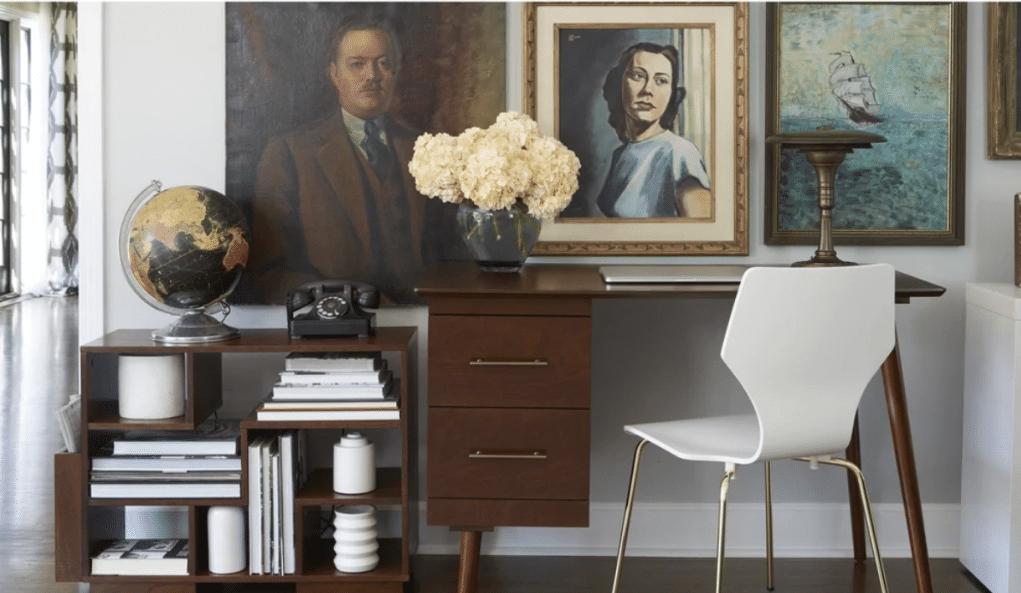
VOL 3 NO. 20 • MAY 14 - MAY 20, 2023 PAGE 6 THEWILL DOWNTOWN • www.thewilldowntown.com D ÉCOR GET
BY KEHINDÉ FAGBULE My Home, My Office Modern Perch Chair in With Chrome Base White 14w 15d 24h World Globe 8” Black Antique Map Linon Cailean Side Table, Brown Kettle Classic Desk Phone Calinda Moon Vase With Faux Florals Wall Arts Mid Century Walnut Desk Happy Day Shelf
THE LOOK: LIVINGROOM WORKSTATION
(2) EXPLORE YOUR FANTASIES
What kind of thoughts or scenarios get you excited?
Try to explore these fantasies through solo play or with a partner.
BY DORCAS AKINTOYE
THE SCIENCE OF SEXUAL CHEMISTRY Understanding What Turns You On Sexual
Chemistry is that physical and emotional attraction between two people that creates the urge to engage in sexual activity. Sexual chemistry can draw people together, even when they may not have anything else in common.

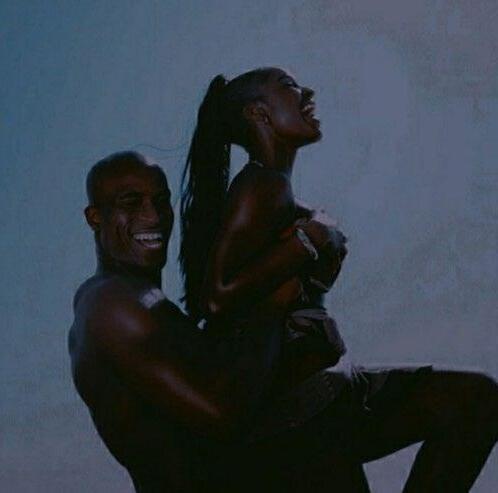
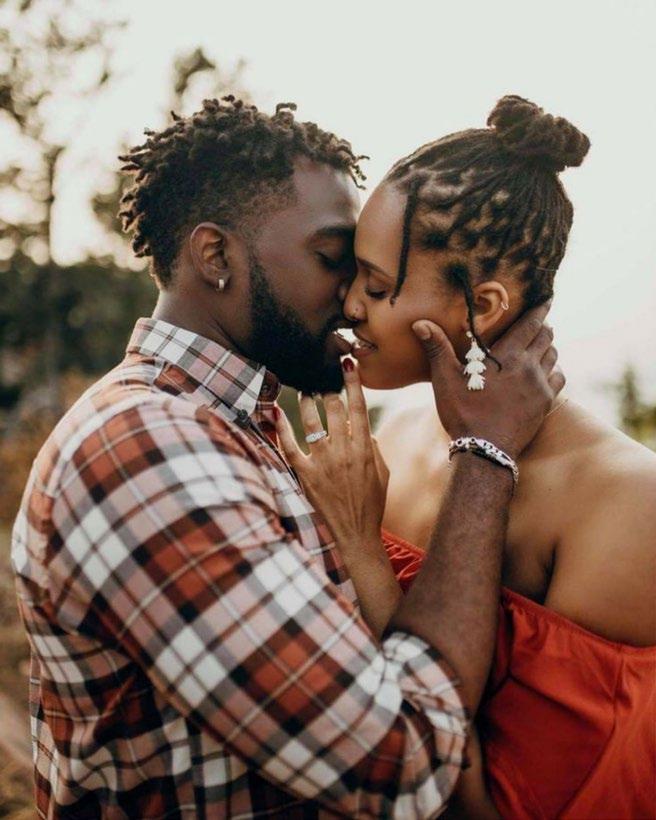
Different factors, including physical appearance, pheromones, personality traits, and shared interests, can influence sexual chemistry. Sexual chemistry experience can be very subjective as it can vary greatly from person to person.
Although sexual chemistry is an important aspect of romantic and sexual relationships, it is not a reliable indicator of a long-lasting relationship. When forming and maintaining relationships, you need to consider other factors like communication, shared values, and emotional connection. The science of sexual chemistry is a complex and multifaceted phenomenon involving biological, psychological, and social factors. Biological in that a complex interplay of hormones, neurotransmitters, and other chemical messengers in the brain and body drives sexual chemistry. Psychologically, as we’ve discussed earlier, sexual chemistry can be influenced by factors like physical appearance, personality traits, unconscious or subconscious cues, and so on. Social factors can also play a role in sexual chemistry, including cultural norms and even expectations around gender, sexuality, and relationships.
Having said that, before you can be able to gain a deeper appreciation for sexual chemistry, you must be able to know and understand what turns you on. Many people don’t even know what their sexual turn-ons are, which isn’t supposed to be. Many struggle to figure out what they like and what they want, as well as the challenges they have in communicating these things to their partner.
Understanding what turns you on can be a personal and complex process, as different things can arouse different people. Below are some tips that can help you gain insights into your turn-ons.
(3) EXPERIMENT WITH DIFFERENT KINDS OF TOUCH
(1) PAY ATTENTION TO YOUR BODY
Take note of the physical sensations you experience when you feel aroused. Do you get goosebumps? Do you feel any form of surge energy in your groin area? Taking note of your physical responses can help you identify what turns you on.
Different types of touch can be arousing to different people. While some prefer gentle, caressing touch, others may prefer a more intense, rough touch. Consider experimenting with different types of touch to see what feels best for you.
(4) BE OPEN TO TRYING NEW THINGS
In most cases, we may not know what turns us on until we try it. Be open to trying new experiences with a partner or solo play to see what feels best for you.
(5) COMMUNICATE WITH YOUR PARTNER
If you have a partner, communication is key. Discuss with them what turns you on, what feels good, and what doesn’t. By doing this, you can work together to create a more fulfilling and satisfying sexual experience for both of you.
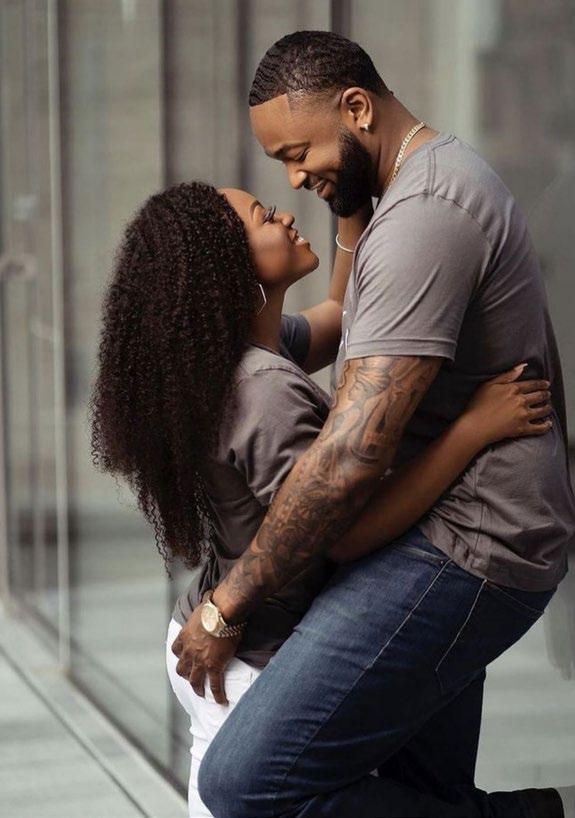
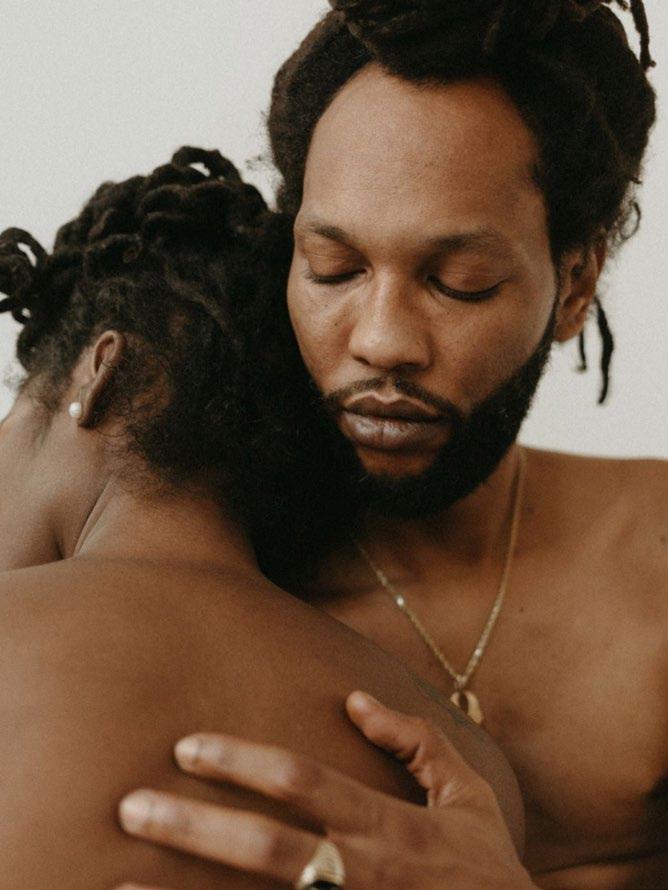
Understanding what turns you on can be a journey, and it’s okay to take your time and explore in your own space.
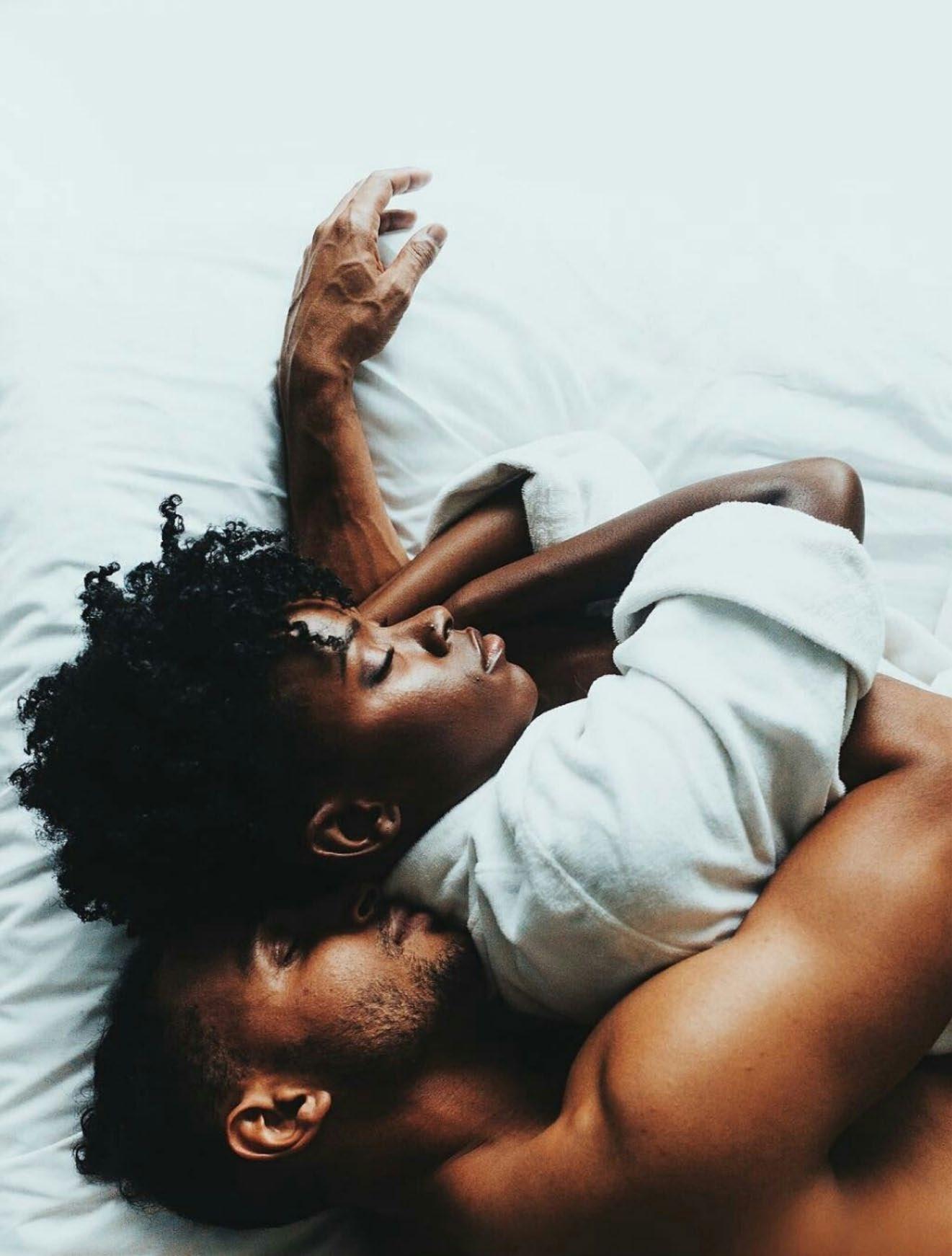
PAGE 7 THEWILL DOWNTOWN • www.thewilldowntown.com VOL 3 NO. 20 • MAY 14 - MAY 20, 2023
DOWNTOWN CONFIDENTIAL
IDIA AISIEN
Will Not Stop Telling Impactful African Stories
Impact;while some are measurable in realtime, others take a bit longer to influence a much larger group, generations. The power of the media to shape narratives that will, in turn, inform us of our society, culture and how we live our lives, or in some cases, ought to, cannot be overstated. Whether it is reporting the story on the news, sensitising people of happenings within their environment, or telling it in films, acting out different scripts that put a creative spin on some real-life experiences, the media plays the most crucial role in impacting society. Across both sectors, only a few people than Idia Aisien understand just how important perspectives and narrations are with Africa as a continent involved. Having earned her B.A. in Journalism from American University in Washington, D.C., and an M.S. in International Public Relations and Global Corporate Communications from New York University, Idia’s plan of someday influencing the community around her and the continent at large took a systemic step-by-step manifestation that saw her go from working in a private equity firm in the United States to becoming a strong voice in the media industry in Nigeria, working with international news TV station, Arise. Idia, who would eventually delve into acting, talked to DOWNTOWN’s Senior Writer, Kehindé Fagbule, about challenging relocation, her moment of epiphany meeting fellow journalist-turned-moviemagnate, Mo Abudu, the latest upcoming film she featured in, Twin Flame, and raising funding for her NGO, International Development Initiative in Africa, to tell more impactful African stories through docuseries.
CREATIVE TEAM
Muse: Idia Aisien
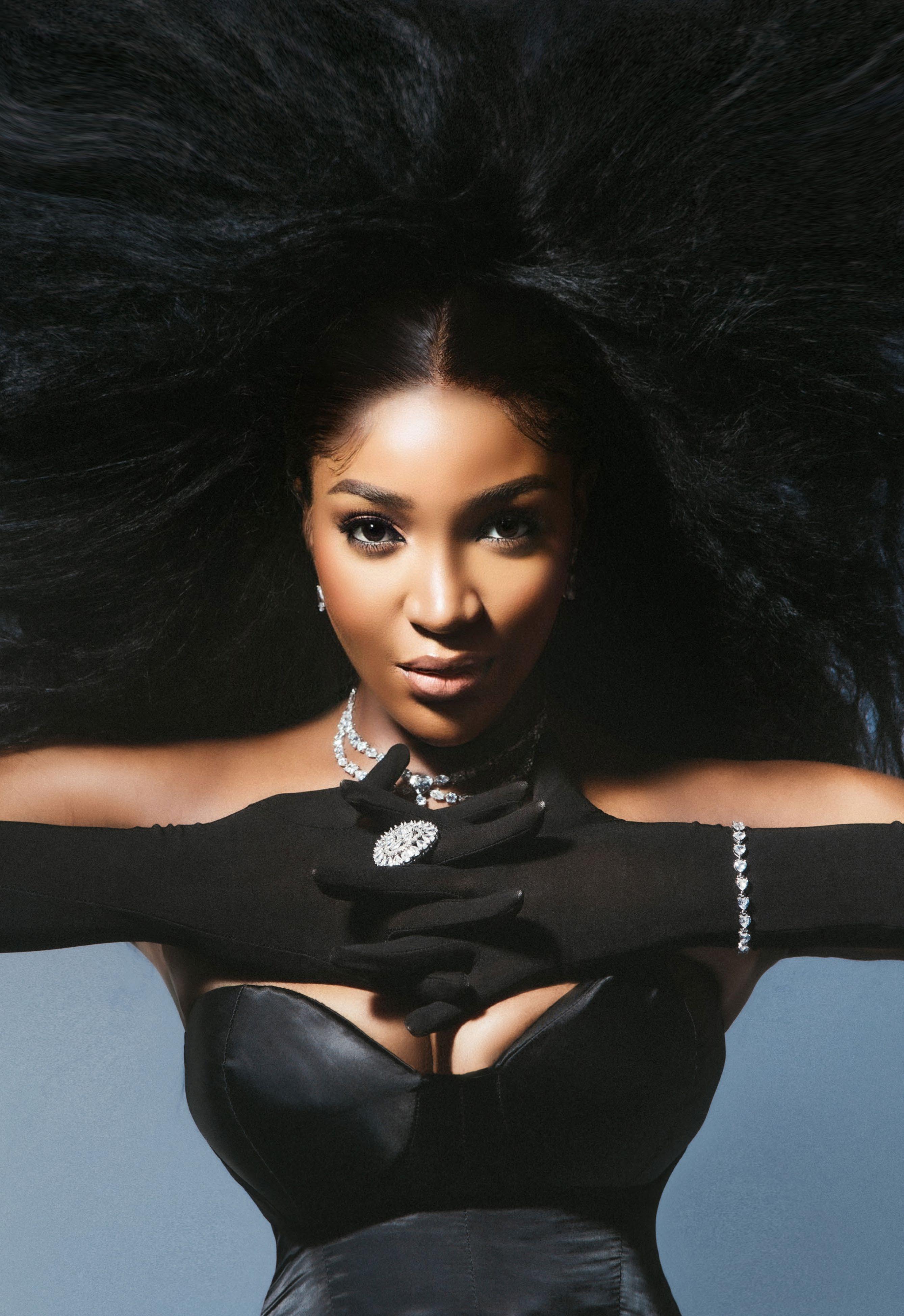
@idia.aisien
Styled by : Ezenwa Ifeyinwa
@stylebyiphie
Photographer : Morgan Otagburuagu
@theginstarp
Assisted by: Enogie Charles
@enogie_charles
Makeup: Adebukola Daffodil
@house_of_daffodil
Hair : Tony Aigbogun
@tonysbeautyace
Jewellery: Tosin Adekunle
@wowaccessorries
Black outfit @Anncranberry
Blazers @hertunba
Blue outfit @iphiesfashionboutique
We know you started as a journalist initially. How did you get introduced to acting? Iwent to meet Aunty Mo (Abudu), and there was an audition for a movie role going on. I told them I wasn’t there for the audition, but they said the only way I could see Mo Abudu was to audition for the role. I wasn’t thinking too much about it. I am very good at memorising, so I was just going to pop in and do the lines. I walked in, and as I was reciting the lines, I started crying. It was an emotional scene and was for a show at the time. Aunty Mo was like, “My darling, you’d be a fantastic actress,” and I corrected her that I was there to audition to be a newscaster and that I’ll be on CNN one day. She was just staring at me and said, “You look like a very good actress; you won’t make the kind of money you think you’re going to make as a newscaster. And we went at it. I was still going back and forth, and I hadn’t really moved to Nigeria fully, so I didn’t pursue the role. When my father passed, I really didn’t know who I was, and I got a call one day that they were auditioning across Nigeria; they were looking for something, couldn’t find certain roles, and the gist was everywhere. What is this audition? My team told me about it, suggesting I go for it. I was wondering why my manager was telling me about a movie and just chuckled like I’m not an actor. I was like, oh my God, these people
COVER PAGE 8
VOL 3 NO. 16 • APRIL 16 - APRIL 22, 2023 THEWILL DOWNTOWN • www.thewilldowntown.com
want me to flop so they can say this girl also auditioned. I don’t want to do this. Anyway, I went for the audition, and then they told me I was going to come back for a second edition. I was like, who are these people? I’m not going to do this film. I was chosen for the movie, and everything just happened. It was Nneka The Pretty Serpent. Coming back to the circle, Aunty Mo sent me a message that she had watched the movie. She wrote, “Darling, I am so proud of you absolutely.” At that moment, my heart just stopped. That was when I remembered that audition that had happened five years before. It just happened; it was never anything I thought was possible. I love movies, and I’ve always been very passionate about how stories are told, but I just thought you had to be born an actress; I didn’t think it was possible for me.
Have you gone to an acting school since then?
Absolutely! I have an acting coach. First of all, for the first movie I did, I had a coach for singing, acting, dancing and fighting every day for about three months. I still had the coach with me when I did the movie for another three months. Since then, I just thought this was something I really liked, and if I brushed up and really put the work into it, maybe I could do better. So up until now, I still have an acting coach. Part of the reason why I have been so excited about going back and forth is because I work with two acting coaches in Los Angeles and London.
“ I remember I had a conversation once with somebody who is quite successful in media and she said, “Idia, you need to be on airplane mode. Everything that people have to say is not your business. When you are successful, eventually they will jump on board. People don’t have to be on your journey or in your team from the beginning, but when it’s going well, they will have no choice but to clap for you.”
Let’s talk about life in the United States. You grew up here and went there for education and came back to Nigeria. You once mentioned in an interview that you regretted that decision. What was that period like for you? Basically, the regret was how I moved to Nigeria. Many people don’t know that at the time, I was living in America and had a very stable life, a great job, and a great apartment. I wasn’t necessarily close to my family because, obviously, they were in Nigeria and the UK, but my future was very well planned. Then I came to Nigeria when two of my sisters were getting married, and I met somebody, fell in love, and thought I was going to get married. So I talked to my company for them to include me on a project they were doing in Nigeria, it was a private equity firm, and they were investing in banks across Africa. So they started a project at the time in Union Bank, and my supervisory boss invited me and I was like “Yeah.” I was supposed to be in Nigeria for three weeks, and now I’ve been here for seven and a half years. I left everything, my comfort, life and job, even though I was able to save a lot on accommodation thanks to my dad, a lot of people don’t get that kind of headstart. After that relationship didn’t work out, I just kind of felt like my life took so many twists and turns and did some little things that were very unnecessary. The interview (with Mo Abudu) happened around the time that my dad died, so I realised that he wouldn’t get to see me fully blossom in my career, and he was one of my biggest cheerleaders, like when he would see me on TV and watch my shows. At the time, I just felt like—I don’t want to say regret—what am I doing, where am I going? That was why.
You are having a good run so far acting, but how did you go from working in a private equity firm to journalism?
Basically, I was working for the United Nations, they have an office called the PeaceBuilding Commission, and they focus on countries coming out of conflict. When I was working there, what I noticed was that different leaders of different countries come and we have these different meetings. We were supposed to have an event, I wouldn’t say it was a small event, but it required an amount that I trusted would’ve been easy for the UN to disburse, and those deals just took so
long to implement. So when I got an opportunity to work for this firm doing the same research role I had at the UN— research on the viable areas of investment and so on, I jumped at it. Although the companies differ, most of the things I had always done were alike and around African stories like how do we move Africa forward, whether it’s through finance or media. How can we change the perspectives of people in Africa? It was never really about whether it’s journalism or this or that, the media is one of the biggest aggregators for change that influences how people think. I realise that the reason I jumped on that firm was because they were invested in Africa, had money and were willing to spend. The UN had seen it all before when they would disburse funds, and the countries wouldn’t spend it on the right things and then come back again. So they were sort of jaded, and this was why we weren’t even getting the funding we needed because they have seen money mismanaged so many times, so they are not interested in that. I noticed that when I was working with the private equity firm, there was this company that had money and didn’t necessarily care about the philanthropy aspect, but they wanted to see how people raise funds. So they just put the money into different people and platforms and just sprouted up the industry, and I was very interested in that. However, after a while on the job, I remember just being sad most of the time because I was like, “Is this what I’m really supposed to be doing?” But I’ve learned a lot from them in terms of being able to get funding for international development platforms and things like that, so nothing was amiss, but it was definitely not my path.
Let’s talk about your movie career…
I did Nneka The Pretty Serpent and Bad Boys and Bridesmaids, and the one that’s on the way is called Twin Flame. But other than that, I have four movies I cannot wait for Nigerians to see; Sons of Wrath, Life and Death,The Reunion and of course, Twin Flame. We also have a Netflix special that I came back to Nigeria to start filming a fortnight ago.
Which of these movies would you say was difficult for you to get into character?
The strongest character I’ve played is in Twin Flame because the girl is just so different from me. If I were born this person, maybe a lot of things that happened to me in my life wouldn’t have happened. She is strong, opinionated, and stands up for herself, but you know, on the flip side, she’s a bit much. I remember when I finished filming, my acting coach told me I had to drop the character, that I was still acting as her (the character). It was very hard for me to drop her. Obviously, Nneka was very difficult because there was the evil, fighting, singing, and dancing, I could not dance to save my life so they literally taught me how to dance and practically everything. So Nneka was pretty tough, and even after filming, I found it hard to drop her as well and come back to Idia because for that movie, I had to meditate on Anaconda, so it was different.
In acting, what would you say is mostly missing in Nigeria? What is the one thing Nigerian actors, including yourself, can do better at?
I think the main thing that is missing comes from us, the production and the viewers is giving Nigeria a chance. There’s this thing that is still happening, and it is one of the things that compelled me to say I actually do want to be an actress. This thing where people just be like “I don’t watch Nollywood films,” I want to be the reason that people say, “No, there are good Nigerian films, have you seen this girl?” And I feel that some of us have always known
this from the days of Ijele with Genevieve, the old Blood Sisters, Diamond Ring, Domitila, Karichika I think there is still a majority of Nigerians that still think abroad is better, and it happens in our industry where we think foreign is better. So if there’s a white director, it’s better. We need to give ourselves, as Nigerians, the chance. Like when Nneka was released, and people said the old one was better. I would always reply, “I know you don’t remember, but the old Nneka changed into a cat instead of a snake, so I know you don’t know what you’re saying when you say the old one is better, you just want to be critical and don’t want to give Nigeria a chance.”
How do you handle those criticisms because there were many of them?
Now it’s way better for me because I’ve just realised that in Nigeria, we are very negative, especially on social media. When we see something we like or enjoy, we mostly acknowledge it in our minds and just scroll past it. But when it is something we don’t like, we are compelled to comment. I see that trend. When you complain about something, maybe the actor, director, or costume, people are more likely to leave a comment. The ones that actually want to give credible criticism or insights are in your DMs rather than on your pages fighting for you. For me, I think the fact that the first year, I gave the most I could. I couldn’t have done better than that because that was all I knew; that was all I had available with me at that time. If there were any issues, it wasn’t my acting, so if it was because I was dark-skinned or wasn’t evil, or as sexy as the first Nneka as many people said, it was not my fault, I gave the best I could according to the script I was given. The criticisms were a handful, but shout-outs to the platforms that support us such as Netflix, Prime and so on, have really helped our filmmakers and even actors because when people were bashing me that the film was terrible, half of the people saying that hadn’t watched it. Netflix posted a photo of me and put a crown on my head, and captioned it, “in love with Idia Aisien,” so that Nigerians would know that their comments were not doing anything. I felt like somebody stood up for me and was so grateful.
From your difficult relocation to the troll criticisms on your big screen debut, what has kept you sane through this entire rollercoaster experience?
I remember I had a conversation once with somebody who is quite successful in media, and she said, “Idia, you need to be on airplane mode. Everything that people have to say is not your business. When you are successful, eventually, they will jump on board. People don’t have to be on your journey or in your team from the beginning, but when it’s going well, they will have no choice but to clap for you.” And I see that with many people.
Where are you with journalism nowadays? Do you still work for Arise TV? Would you say that you made the right decision now that you are acting more or do you still have the thirst for journalism to one day work for the likes of CNN and the BBC?
No, I no longer work for Arise. I had a goal and felt like everything I was doing, I was climbing up to
“There’s too much drama in Nollywood,” I actually heard this at one of AFRIFF’s masterclass courses during the Wakanda period. They feel like there was a lot of over-acting in Nollywood movies, and this was a time when there was so much potential in the industry, especially with the new movies we are churning out now. There can be good acting, we can still have that drama, suspense and everything in a film, but with great intentional stories.”
PAGE 9 THEWILL DOWNTOWN • www.thewilldowntown.com VOL 3 NO. 20 • MAY 14 - MAY 20, 2023 COVER
COVER
the kind of stories I wanted to tell, which were like African stories, progress being made around the continent. A part of me still really desperately wants to tell this story, and I will. But the reason why I can pursue acting now is because I believe in the parable of talent. I think that God has given all of us at least more than one thing that we are good at, and it is our responsibility to harness the different things we’re good at to create impact, and yeah, acting was one of those things. But I don’t know it to be my only thing in life; I still love art. I can paint and draw. I love telling stories, and I love writing. There are so many things I want to do, but I think I am so excited just to find out that there are these other things that I can do, so why not get to the top there as well?
Speaking of making an impact, we know you started an NGO. Tell us all about it.
Where is your focus on that?
It is called the International Development Initiative in Africa, and till today, it is one of my proudest, happiest, strongest babies. It’s basically a platform we use to tell stories of amazing things happening around the continent. For instance, we are talking about the first robotics in Nigeria, the lady that created a bra that can help detect breast cancer early, and other people like that doing amazing things around the continent. The problem is you only see people that only want to spread false news about Africa when there are so many good things happening. The premise of the platform is to push out those good stories. Our next step is we’ve got an international platform that wants to fund our documentary series. When we shoot it, we will go across different countries and be able to tell those stories hopefully on a global scale—I don’t know where we’ll put the show yet. These stories help to aggravate more people who are interested in doing more for the continent.
You are quite passionate about this, do you think that someday you might focus on this? I don’t want to call it my retirement plan, but that’s my plan for later to just focus on the stories, travel and meet people, whether it’s a farmer or people who have created their own NGOs, just telling these stories.
Let’s talk more about your new movie, Twin Flame, the one you got a standing ovation for. When are we expecting it out?
It’s going to be out this year for sure. The film just got into one of the film festivals and they are waiting for two more confirmations. So they want to do the film festivals first. After that, they will decide how to bring it to Nigeria whether on streaming platforms or the cinemas. I don’t think I will ever be looked at the same as an actor. You sound like you did an amazing job. Why should we look forward to it, what should we look out for?
There’s a plot twist because you will never expect the performances. Sometimes you can have a good performance but the overall story is not strong, but when I saw the movie, everybody’s acting was good. We had seasoned actors and it was just so easy to watch and watch over again. There are a lot of movies that are good but you wouldn’t necessarily watch them repeatedly. In this movie, you wouldn’t miss a beat, there’s romance, drama, comedy. My character is disruptive, she just turns the whole film on its head.
You mentioned that Twin Flame is an international feature film. What does that entail for thespians in Nigeria and the diaspora?
“There’s too much drama in Nollywood,” I actually heard this at one of AFRIFF’s masterclass courses during the Wakanda period. They feel like there was a lot of over-acting in Nollywood movies, and this was a time when there was so much potential in the industry, especially
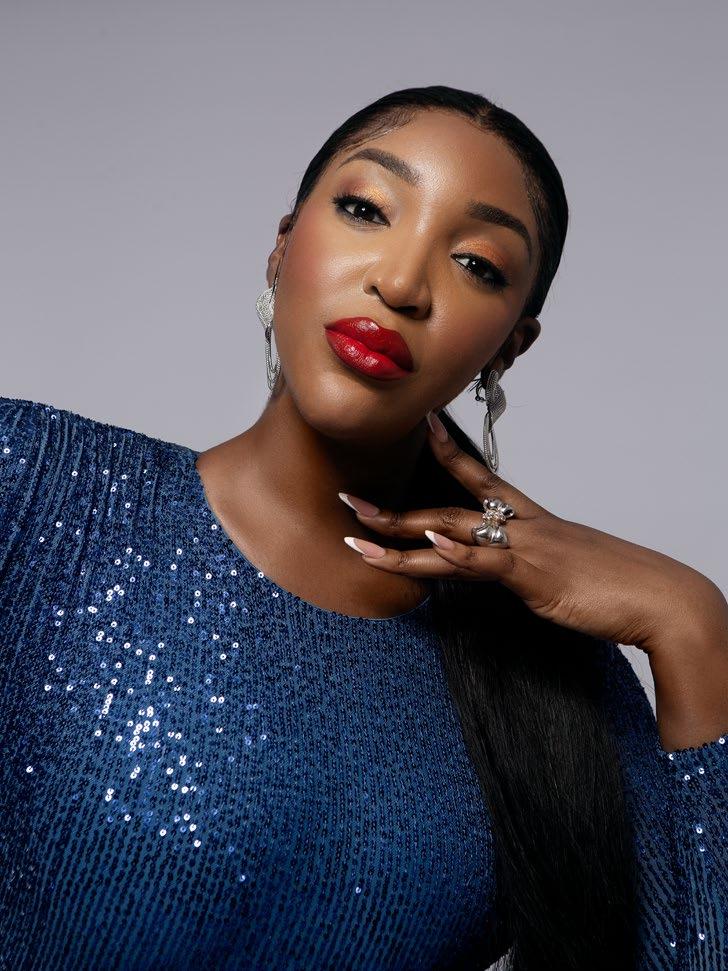
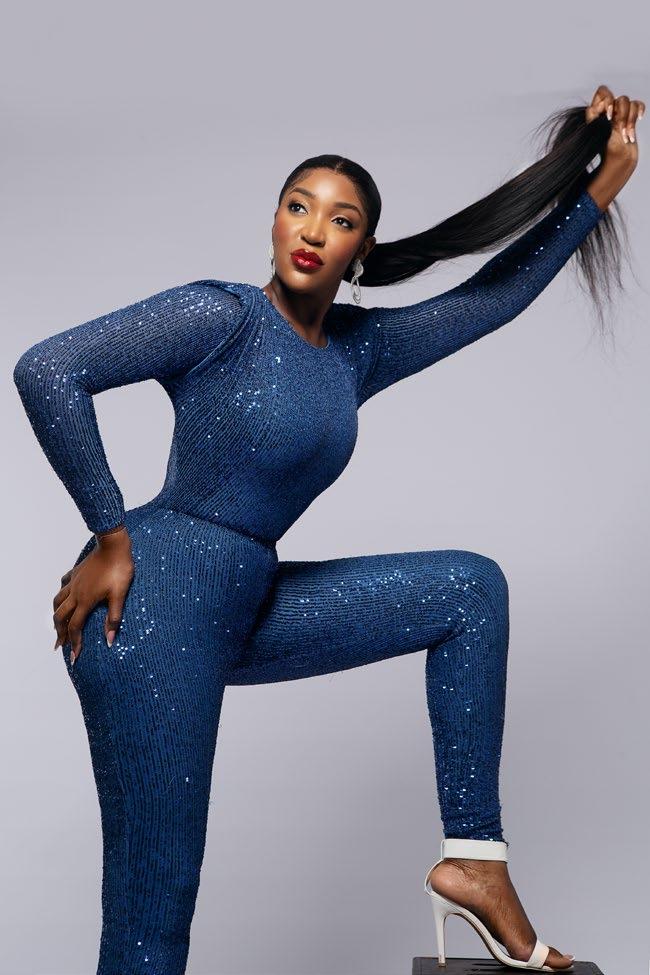
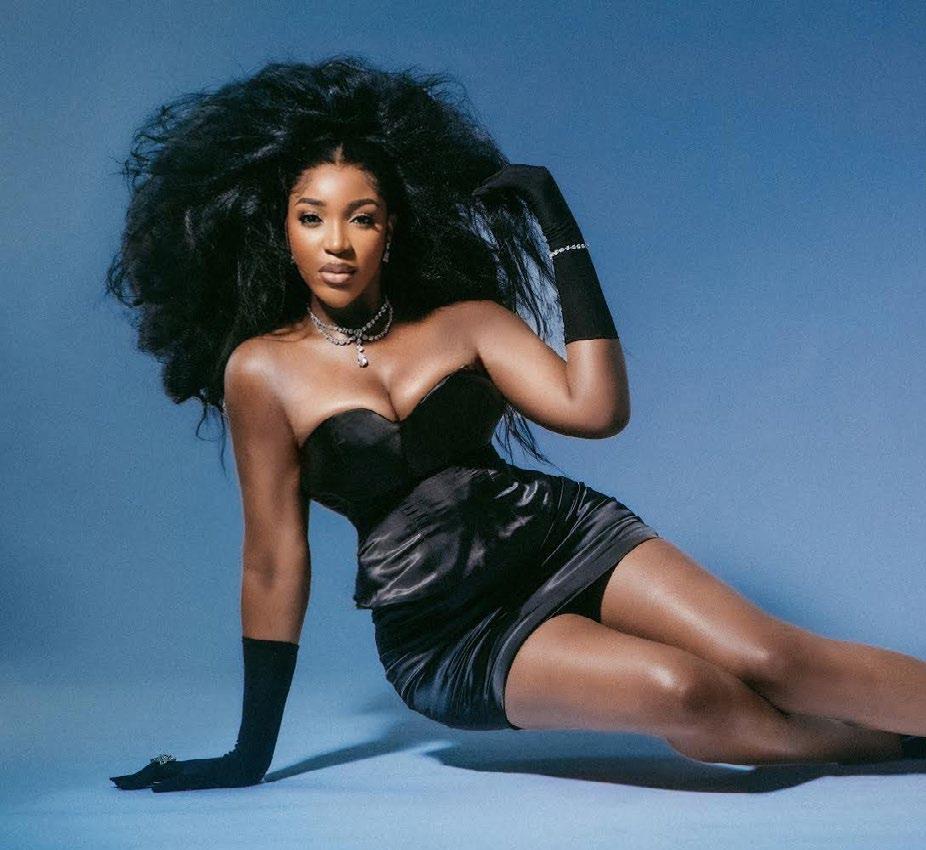
with the new movies we are churning out now. There can be good acting, we can still have that drama, suspense and everything in a film, but with great intentional stories. And I think those great intentional stories are the things not cringe when they want to watch a movie, will make the movie easy to watch because sometimes the overdramatisation and the things that are clearly impossible people that happens in films, people love watching in Bollywood. We just want to see stuff that is relatable, makes sense and is easy to watch. I think that now there are many seasoned Nigerian storytellers, people that have travelled all over the world. In this particular movie, one of the lead actresses, Ejiro, she’s lived her whole life in Los Angeles, California. A lot of people auditioned for her role and the director said “No, we need somebody that is Nigerian but fully American. We need somebody that understands what it is to be an American girl coming back to Nigeria. And they had to shoot back and forth between Nigeria and California because they needed to give viewers that relatability on both sides. I think in general, it is something a lot of filmmakers abroad will really be interested in, and there will definitely be more work between the global market and Nigeria.
For many people abroad worried about relocating back home to Nigeria, what piece of advice would you give to them that helped you become successful thus far?
I think the main thing is just having a plan. Too many people don’t have a plan, they just want to come, go with the flow. Have a plan, an endpoint, a vision, something you’re trying to achieve. The vision helps you highlight where you should be, what kind of company you should keep, where you should go, and the kind of jobs you should accept or apply to. For instance, in my case, we all know how well comedy is doing in Nigeria, right? But for me, because I know that with acting, the kind of actresses that I’ve always liked, they have range; they can be funny, but they wouldn’t necessarily do everything. I want to be the kind of actor that can do very physical roles that involve fighting but also very mental roles like depicting things that are important whether it’s drugs, cartels or immigration, stories that are important. It’s great to laugh and things like that but I want to be known for stories that are important and impactful, so that’s where I’m focused. And I think just having that plan and vision helps
you know what to accept or not. So they’ve given me roles where they are like “It starts with Idia in the shower.” That can never be me [laughs]. People should have a plan, don’t wing it. If you wing it, you are going to waste so much time. Even with a plan, I made those mistakes because I wasn’t focused. Being focused has really helped me. Immediately I meet someone or have a business encounter, I just know that although it might be great, it’s not for me. What would you like to be remembered for in the industry?
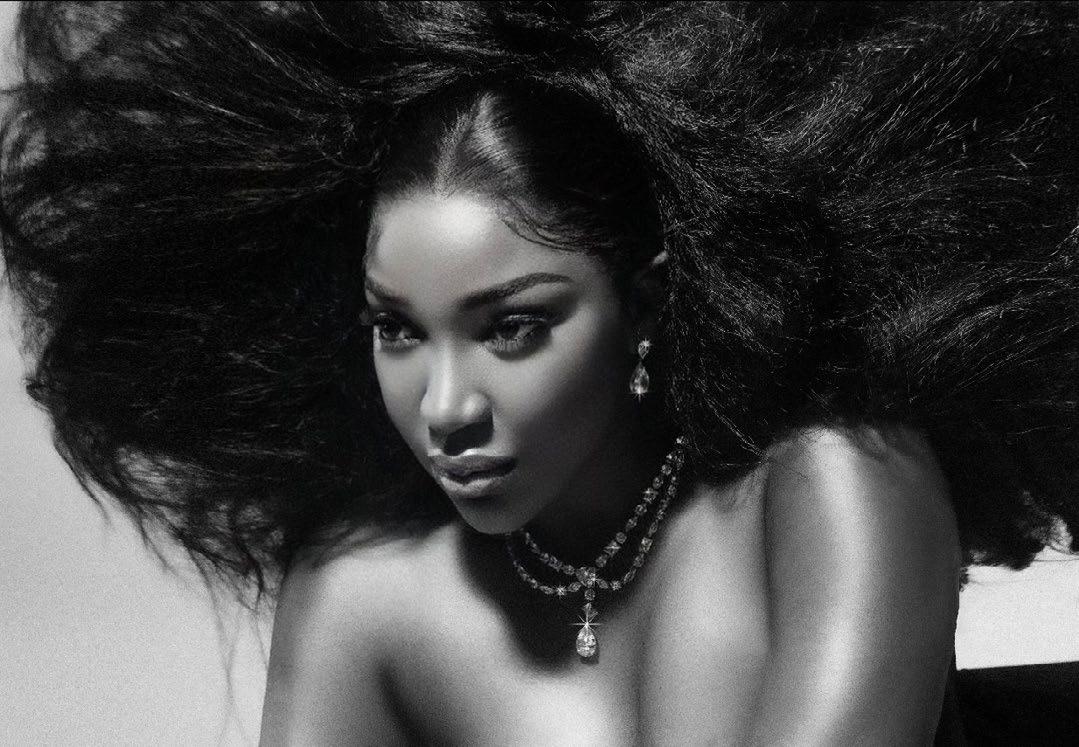
I want to be remembered as somebody that was disruptive. I was disruptive, I came out of nowhere but you couldn’t ignore. There’s a really big actor that said to me, “Idia, it’s been a long time since I saw somebody that really focused on the acting rather than just making people laugh or just being pretty. You don’t care whether you are fine when you are acting.” I want to be remembered as somebody that actually has techniques and
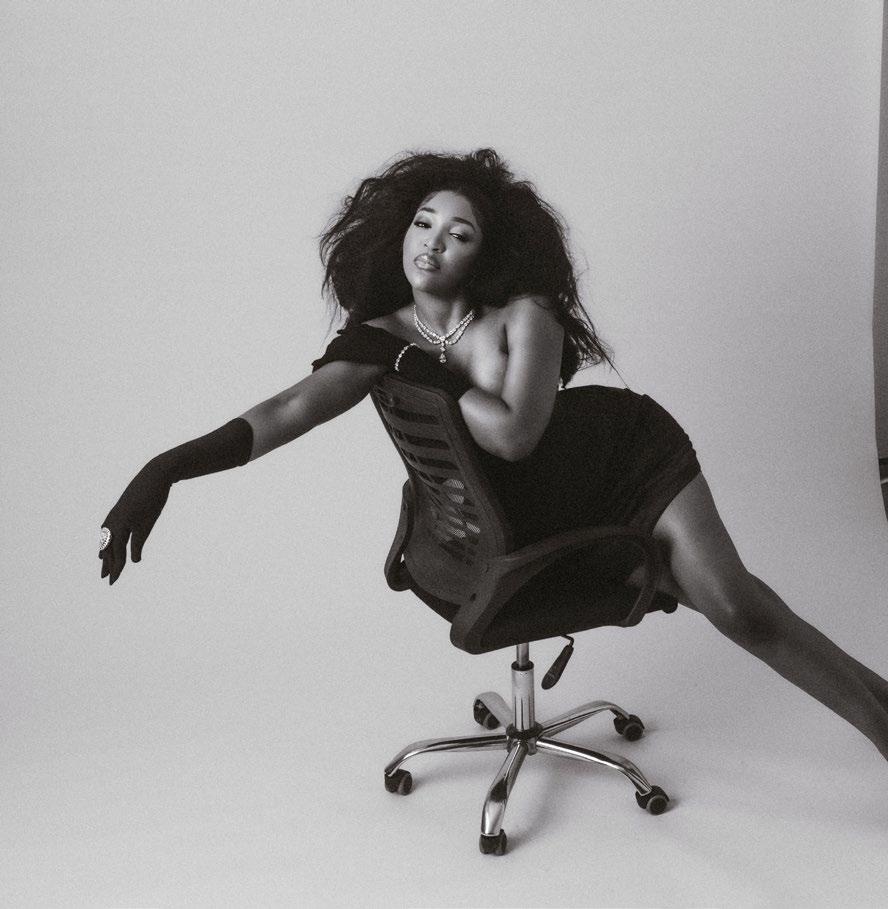
VOL 3 NO. 20 • MAY 14 - MAY 20, 2023 PAGE 10 THEWILL DOWNTOWN • www.thewilldowntown.com
I want to be remembered as somebody that was disruptive. I was disruptive, I came out of nowhere but you couldn’t ignore... I want to be remembered as somebody that actually has techniques and delivers.
QUICK CHAT WITH DEED
Totell a story and spread the tale across the nooks and crannies of the world, words is not enough. Since humanity, cultural documentation in the form of timeless photography has been embedded in how we understand the world around us, a tool that has been greatly utilised by the media to enable the spread of pop culture across the Atlantic. In the case of Nigerian pop culture exportation, which has seen the country’s music industry enjoy global attention in recent years, the power of imaging cannot be overstated. When Tems, one of Afrobeats ship captains, honoured the invitation and went to the Academy Awards in style, stealing multiple headlines for her look, sophistication and congenital sass, fans and onlookers worldwide inducted that whole occasion into the Oscars Hall of Fame moments. But it wouldn’t have been a talk-worthy moment if her essence was not only captured on camera but also in the best possible way by celebrity photographer and creative director, Roderick Ejuetami, professionally known as Deeds.
Just like most top photographers out of the most populous black nation on earth, Deeds started his career in the nation’s commercial capital of Lagos and worked his way to the pinnacle of Nigerian entertainment, responsible for some of the most iconic imageries of the Nigerian entertainment scene. In a quick chat with DOWNTOWN, he talks about photography.
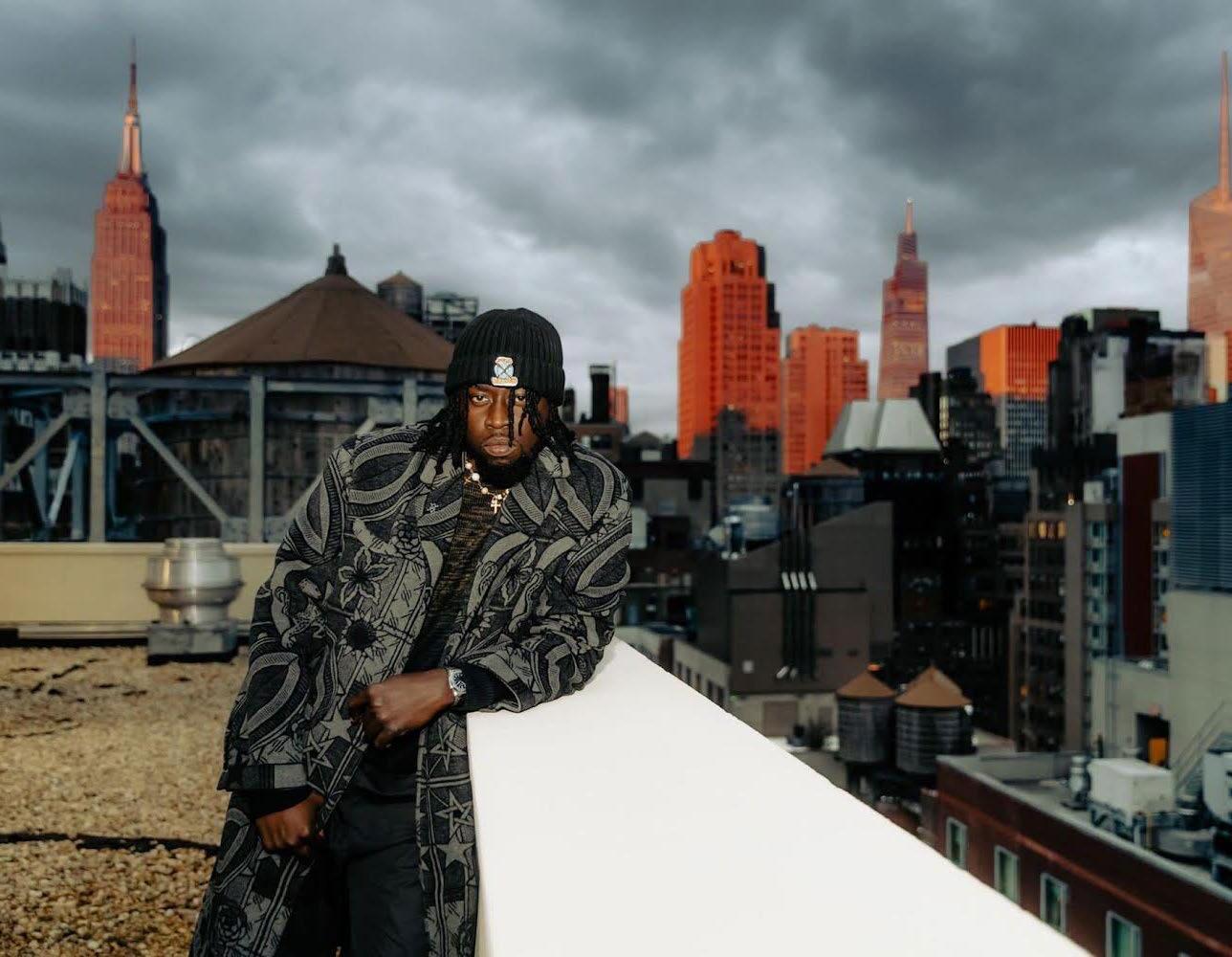
approach to each project?
How do you approach photographing a celebrity? How did that start?
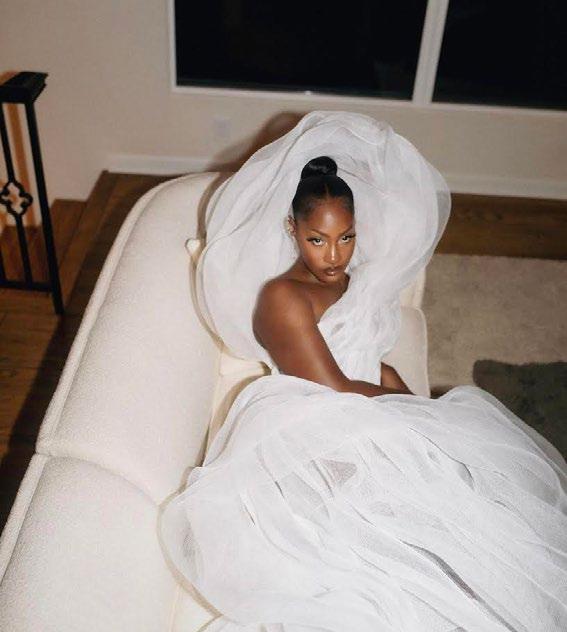
Istartedout photographing everyday people. From one project to another, I used to cover events back in the day, so I built my network with people and different artists. I always try to make them look like their greatest selves. I want to amplify whatever I’m seeing through my lens. That’s my job as a photographer and visual artist.
How do you build up to a really high-profile job with an A-list celebrity?
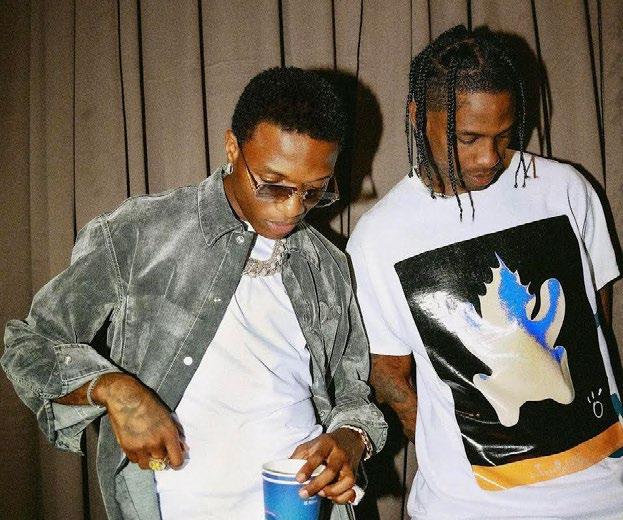
You feel the pressure because you always want to put your best foot forward, but I try to focus on the process. Taking myself through the process over and over, trying to get it right until the moment comes.
On the day of the project, when I go in, I try to make sure that my subject is very comfortable with me, so I start with normal rapport because you can’t photograph someone you’re not comfortable with.
How do you go around shooting divas?
In that instance, the best route is to be very professional. Get a contract in place, and understand what they want. Before I go into any project, I always like to know details down to the T; who am I dealing with? Why am I here? What am I giving you?
Talk about some of your projects, and what would you say is one you are particularly proud of? There’s been a bunch of them, but recently, I did this billboard campaign for an international brand, a job I got through an agency in London, and it is presently being displayed in Africa, most especially in Lagos. I’m proud of that because I remember growing up as a photographer in Lagos, starting the hustle; I’ve always told myself that I would have my works on billboards all over my city. And right now, it’s everywhere and features Falz, BNXN, Zorro and T-Garbz, and it was a good campaign. I enjoyed it. I’m proud of that one. Back in the day, I covered full concerts. At the same time, I had a bunch of amazing creatives work under Deeds Studio—an agency that provides creative solutions for anybody or corporation.
How do you stay current and innovative in your
From the start of my photography career as a photographer to becoming a creative director, I have been conversant with creating processes. I’ve been the one creating. I always make the trend, and I try to be ahead of my time. For instance, when I started shooting, I introduced this style of direct flash to the Nigerian scene because I felt like everybody was doing the normal thing, and I needed to stand out. I have always been in front of the trend, on my own trend. I don’t try to do what everybody else is doing; if anything, being different has helped me create a different approach. I remember when I registered it, the way I came out was very different and branding myself as a music photographer at a time when there were no music photographers in Lagos. They would refer to me as a cameraman [laughs]. I’ve always been ahead of the game and ready to introduce new things, always studying the world and knowing exactly what to do and what is needed in this space, and it has helped me keep that edge over my space.
What advice would you give young photographers on monetising and copyrighting their projects?
They need to be conscious of how important that is because it is basically the core of what you do as a photographer—owning your art. In this part of the world, there is very little attention paid to photographers and how important they are, but it is so important to understand the values of a photographer. That way, you understand the value of copyrighting and protecting your work. I will advise photographers to stop selling themselves for cheap. Know the value of your time, charge for your time, charge for the use of your photos in the music scene, don’t sell yourself short trying to gain short-term clout and protect yourself. If you really believe that you’re trying to become a photographer or you’re trying to work in the creative industry, you need to value yourself
and your time, and with the art that you create, copyrighting is very important. You need to know everything about it. Do your research, have contracts, and always put your art at the highest level that you can. If you can do your job well and work in good faith, every other part will come into place, and you’re going to have an amazing career.
A lot of young Nigeria at the grassroots level don’t exactly speak legal terms. Can you recall the first time that you reached out to a legal team or someone to help you start your first contract? For me, it was more of learning on the job because I had to go through an experience that opened my eyes to understanding why I needed to protect myself. I had this very big client, a very big artist, and there was a situation where I felt like I was being used. I took a photo of this artist and this artist used the photo all around the world without informing me, billboards everywhere. The artist reached out to me through a team that I considered family, so it was a project based on friendship and family and I didn’t even charge them my rates and was nonchalant about my work because, of course, it was a family gig. I took the photos, sent them over, and days later, I saw them all over the internet and on billboards. It was a very big project. When I saw it, I reached out like I was never told this was happening. Why did you guys use these photos without informing me? I need to get paid for this usage. Instead of fixing the problem, they turned around and assured me that I couldn’t do anything about it. So basically, I was being bullied. They shut me down. So after that experience, I never took contracts for granted. I went straight to a lawyer and told them that I want to be protected anytime I do a photoshoot. Anytime I work, I want to make sure that my rights are protected. I want to be able to control how my images are being used.
There was a time I had a big project with Tiwa Savage, and Apple reached out for the copyright of just two of those photos, and they paid a lot of money. It was 8,000 dollars at the time. I am going to be doing a workshop very soon just so I can sensitise the creative community about all of these because it is very important. You can’t underestimate the value of knowing your rights and knowing that they are being protected because people will use you.
You mentioned your work at Deeds Agency. How did that phase begin when you started the mentorship?
It’s been a crazy run.
Throughout my career, I’ve experienced an amazing upward journey based on the amount of work I’ve put into the craft. It got to a point where the name Deeds built a really pleasing reputation in terms of the amount and quality of services
I render. At that point, I realised that it needed to be bigger than just me, and I was able to gather other creatives as I couldn’t handle all the workload alone. It was the smarter option.
PAGE 11 THEWILL DOWNTOWN • www.thewilldowntown.com VOL 3 NO. 20 • MAY 14 - MAY 20, 2023
QUICK CHAT
What Will We Be Eating in 20 Years? THE FUTURE OF FOOD
BY DORCAS AKINTOYE
is necessary for survival and is important in all aspects of our lives, including our culture, tradition, and social life. Over the years, the future of food has been gradually changing due to several factors, like population growth, climate change, and limited resources. In the next 20 years, our diet may differ from what we are used to today.
Food
Sustainability is one of the challenges facing the food system, and there is a need for it to be corrected before it gets out of hand. Even if we continue to increase our population, we need to balance the equation: try to produce more food while minimising the environmental impact. Due to the lack of sustainability, there has been an increase in alternative protein sources, which includes plant-based and lab-grown meat, which can be produced with few resources and a lower carbon footprint. Additionally, technologies like vertical farming, 3D printing, and so on are now becoming one of the sure ways to produce food efficiently and sustainably.
As we’ve said earlier, the future of food is a complex and exciting topic that touches several aspects of our lives. As we look ahead to the next 20 years, we can expect to see more innovative solutions to the challenges facing the food industry, as well as new flavours and culinary experiences that supersede what we can ever imagine. Below are some predictions for what we might e eating in 20 years.
(1) PLANT-BASED PROTEINS


Plant-based proteins are more likely to become mainstream with the increasing popularity of veganism and environmental concerns about animal agriculture. In the next 20 years, expect to see more plant-based burgers, sausages, and other meat alternatives in restaurants and grocery stores.
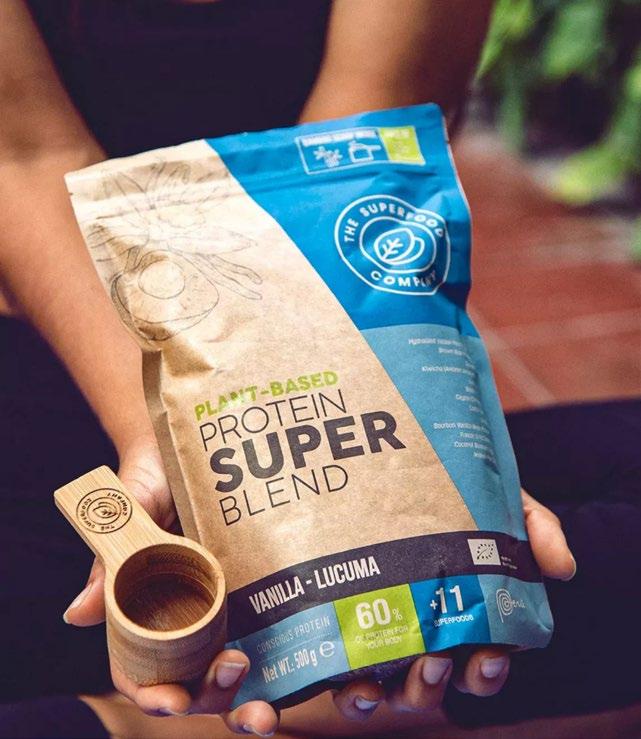
(2) LAB-GROWN MEAT
It is possible to create meat without the need for animal slaughter. The production of Lab-Grown meat involves taking cells from an animal and growing them in a lab. Even though the technology is still in its early stage, there is the possibility that lab-grown meat could become more widely available in the next 20 years.


VOL 3 NO. 20 • MAY 14 - MAY 20, 2023 PAGE 12 THEWILL DOWNTOWN • www.thewilldowntown.com BON APPÉTIT
(5) VERTICAL FARMING


Since urbanisation is gradually increasing and arable lands are becoming more scarce, vertical farming could become a popular way to grow crops. In vertical farms, crops are grown in stacked layers, and artificial lighting and climate control are used to optimise the growth of the crops. Vertical farming is better than traditional agriculture because it reduces the need for pesticides and herbicides.
(3) INSECT-BASED FOODS
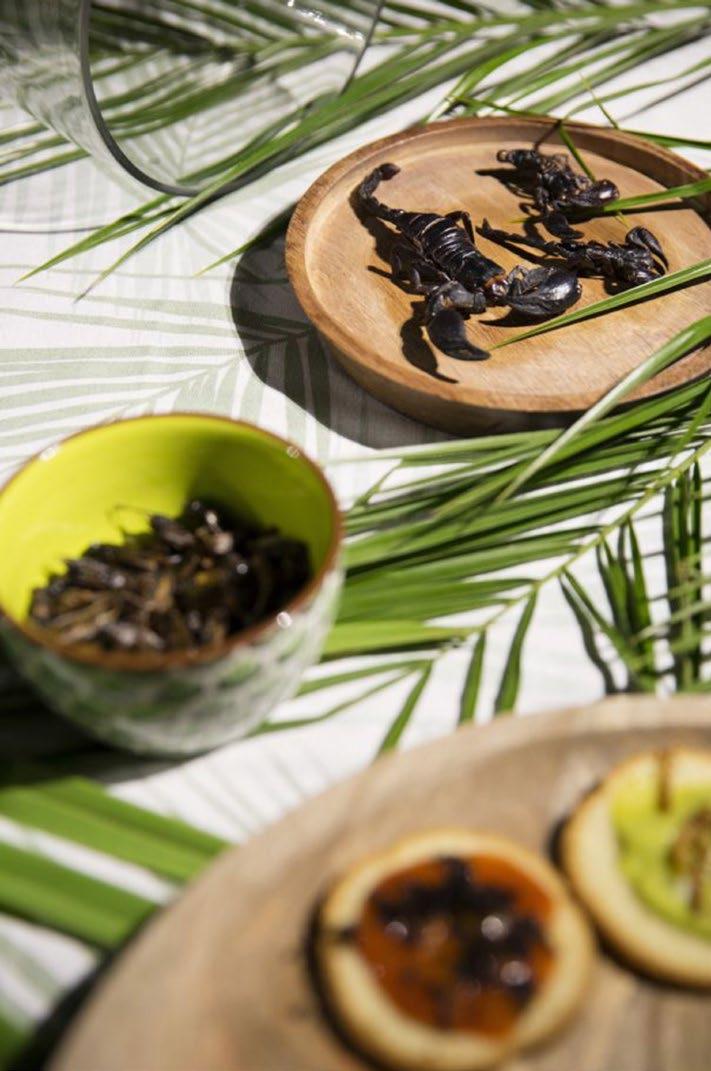
Apart from the fact that insects are a great source of protein, they are also more environmentally sustainable than traditional livestock. Since insects are already a popular and nutritious food source in many cultures, we might see more insect-based food in Western counties in the future.

(4) PERSONALISED NUTRITION
With the help of genetics and biotechnology, it is becoming easier to tailor our diets to our individual needs. In the next 20 years, we might see more personalised nutrition plans based on our DNA, gut microbiome, and lifestyle habits.


BON APPÉTIT
The future of food will likely be more sustainable, personalised, and technologically advanced than ever. Even though some of these changes might seem daunting, they offer exciting opportunities for people to explore new flavours and ways of eating.
(6) 3D-PRINTED FOOD

This might sound like fiction, but 3D-printed food is already a reality. This technology allowed people to create customised, intricate shapes and designs using food materials like pureed vegetables or ground meat. In the next 20 years, 3D-printed food could become more widespread, allowing chefs to create unique and artistic dishes.

PAGE 13 THEWILL DOWNTOWN • www.thewilldowntown.com VOL 3 NO. 20 • MAY 14 - MAY 20, 2023
The Science Behind
HOW BEAUTY ROUTINES CAN IMPROVE MENTAL HEALTH
BY DORCAS AKINTOYE
Over the years, beauty has always been a part of human culture. Taking care of oneself goes beyond improving your physical appearance, it can also help in improving your mental health and overall well-being. Scientific studies have been able to show a relationship between beauty routine and mental health and how they work together to make us balance in all aspects.
BOOSTING SELF-ESTEEM
Beauty routines like applying makeup, using skincare products, or even styling your hair go a long way in boosting your self-esteem. We all can agree that when we feel good about our appearance, we tend to engage in more social activities and, most importantly, pursue our goals.
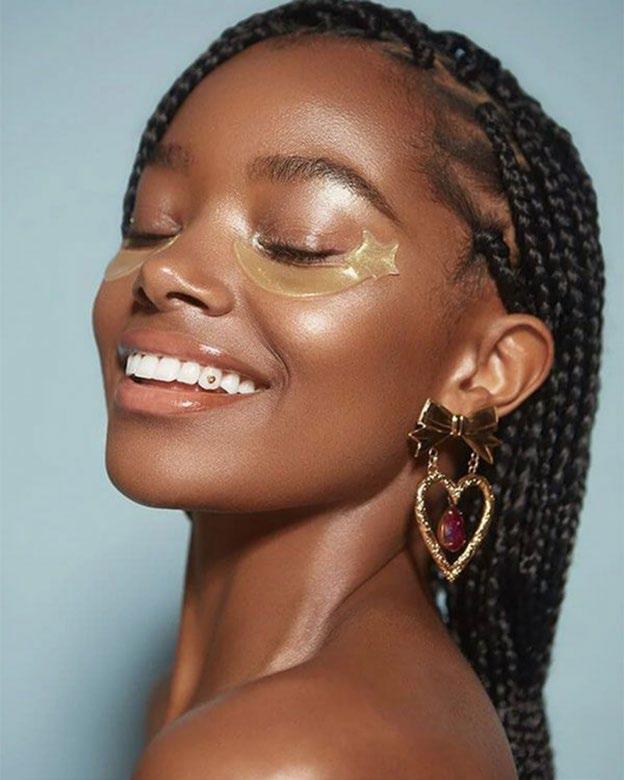
Engaging in beauty routines, including applying makeup, using skincare products, or even styling your hair, can help boost your self-esteem.
REDUCING STRESS
Engaging in a beauty routine can go a long way in reducing stress levels. Hair care rituals, like shampooing, conditioning, and styling, can have a relaxing effect on the mind and body.
The same benefits go for engaging in a beauty routine.
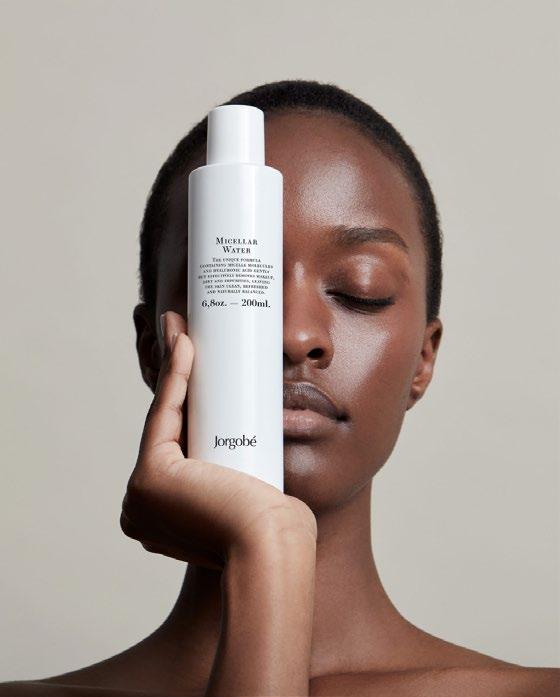
3 4
ENHANCING SOCIAL CONNECTIONS
Engaging in beauty routines can help in enhancing social connection and improve mental health. Women who engage in beauty routines have a higher level of social support.
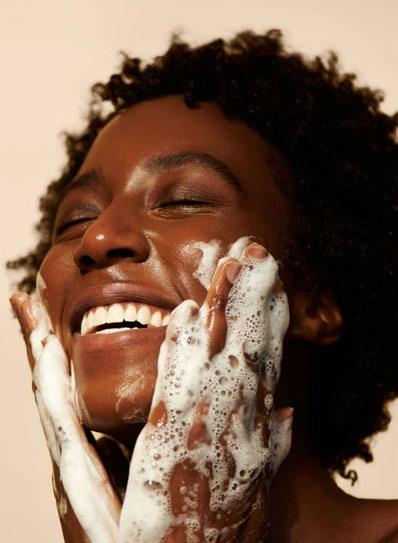
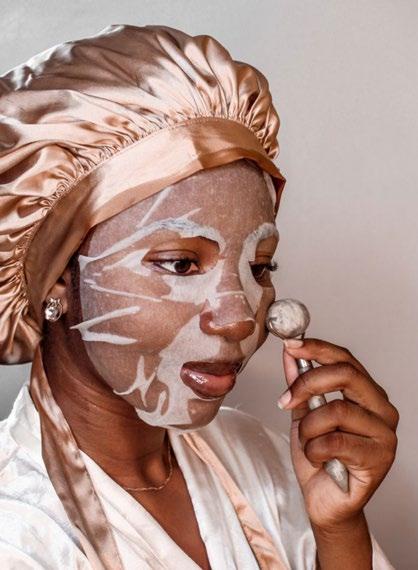
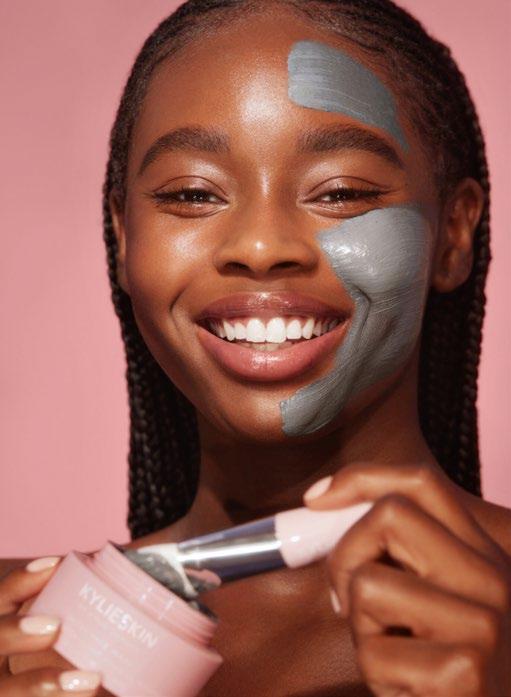
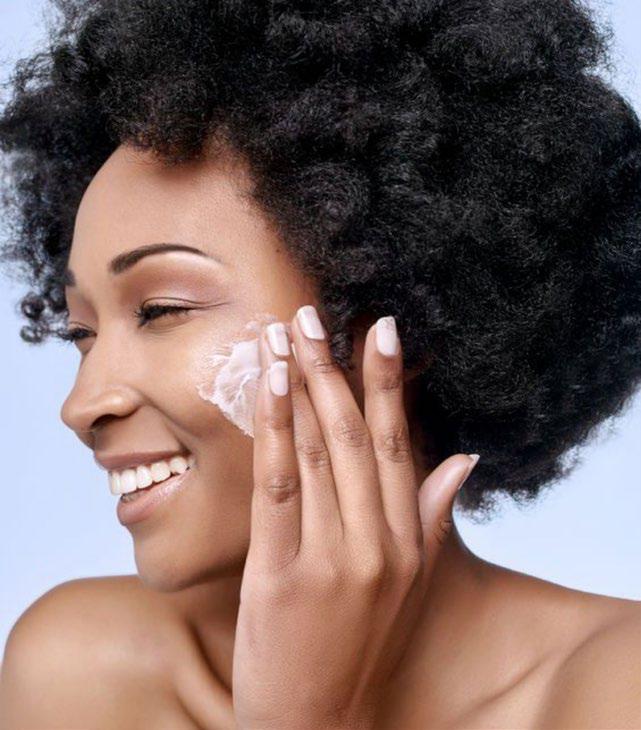
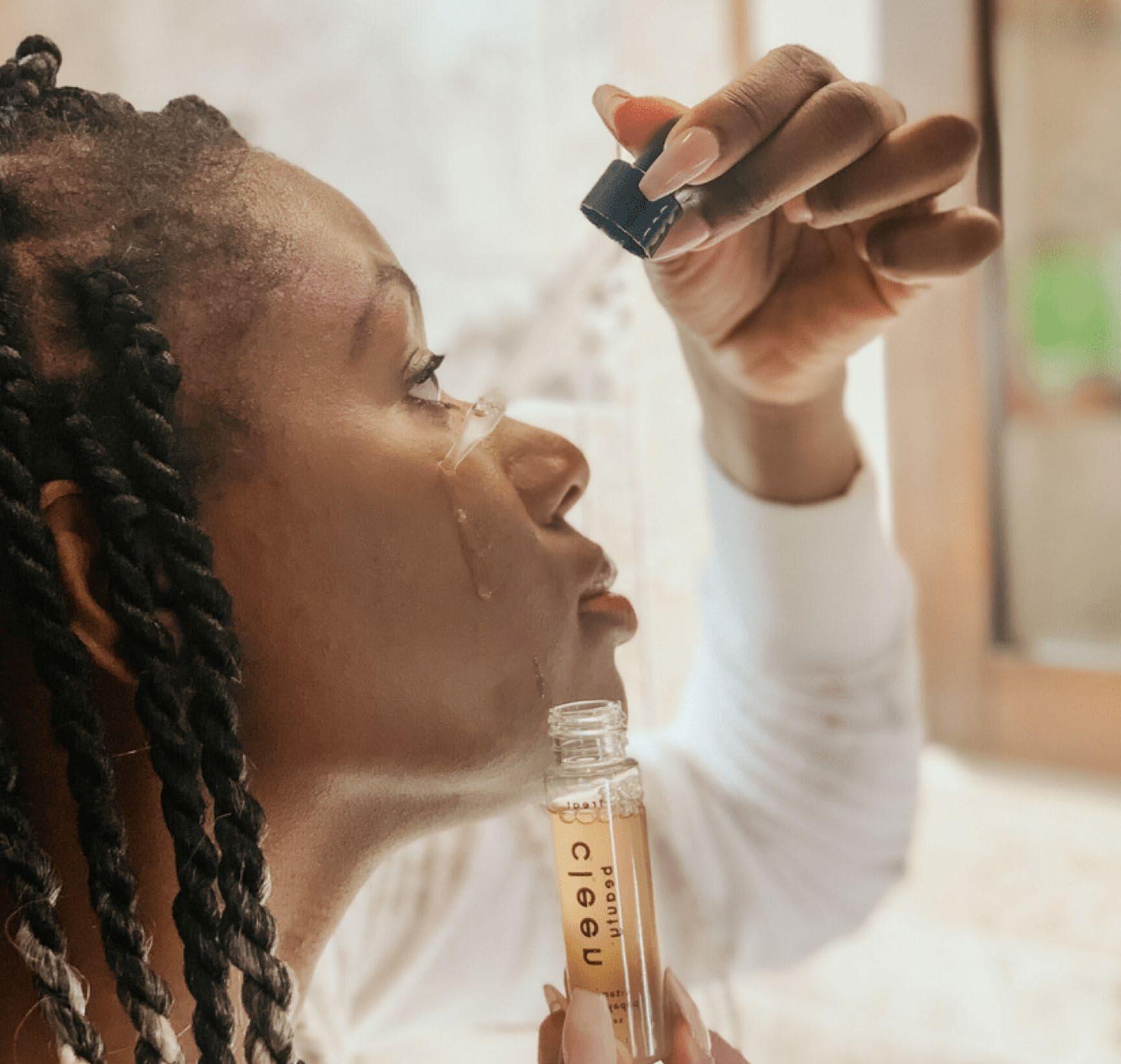
PROVIDING A SENSE OF CONTROL
It doesn’t matter whether you already have a beauty routine or you are yet to establish one, in this article, we will explore the connection between beauty routine and mental health and how including self-care practice into our daily routine can help in having a positive impact on our mental and emotional state. Below are some ways beauty routines can help improve mental health. 1 2
Engaging in beauty routines helps a lot in providing a sense of control over your appearance and how you present yourself to the world. This can be more helpful during times of stress or uncertainty when other aspects of life may feel out of control.
KEY TAKEAWAY
Beauty routines play an important role in improving our mental health. Nevertheless, you must not rely on beauty routines alone to improve your mental health. Individuals need to seek professional help when struggling with mental health issues.
VOL 3 NO. 20 • MAY 14 - MAY 20, 2023 PAGE 14 THEWILL DOWNTOWN • www.thewilldowntown.com
BEAUTY
ELATUYI’S Dr Omotola 45 45
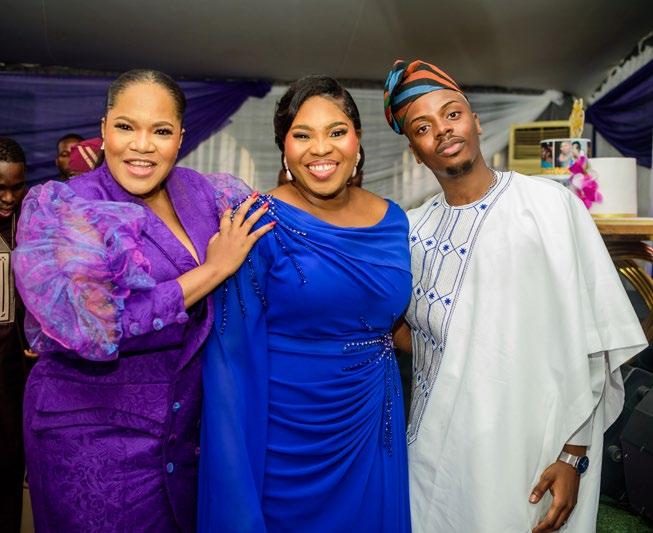


It was a praise party with a different kind of vibe as Dr Omotola Elatuyi the Marketing Director, Sub Saharan Africa at Pladis Global Limited recently clocked 45. Friends and family members gathered to rejoice with her at Grandeur Events Centre, Oregun, Ikeja. A seasoned commercial and strategic planning business leader with over 20 years significant experience within the financial services and fast-moving consumer goods sector, Tola’s birthday praise party saw the coming together of the entertainment industry elites and top socialites. Among the esteemed guests were Toyin Abraham, Tunde Adewale (Tee-A), Teju Oyelakin (Teju Babyface), Bunmi Davies, Enioluwa Adeoluwa, to name a few. In what would turn out to be a vibrant end of the party, guests and well-wishers graced the dancefloor as Afro pop sensation, Imanse, delivered a characteristic musical performance.
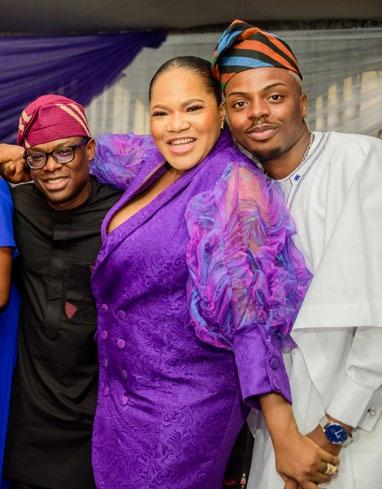
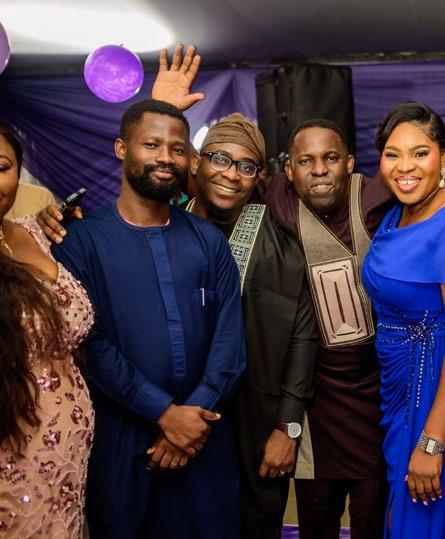
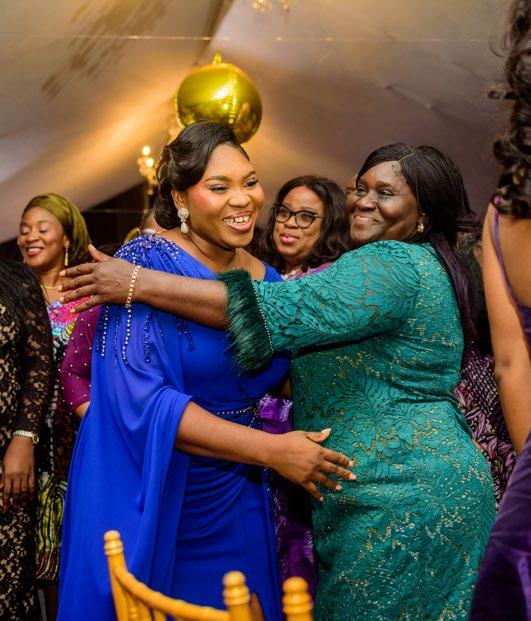

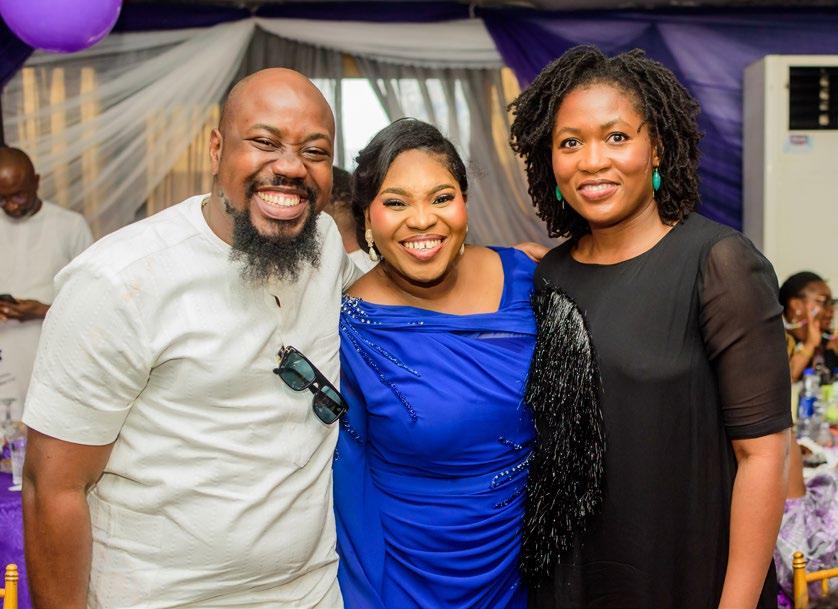
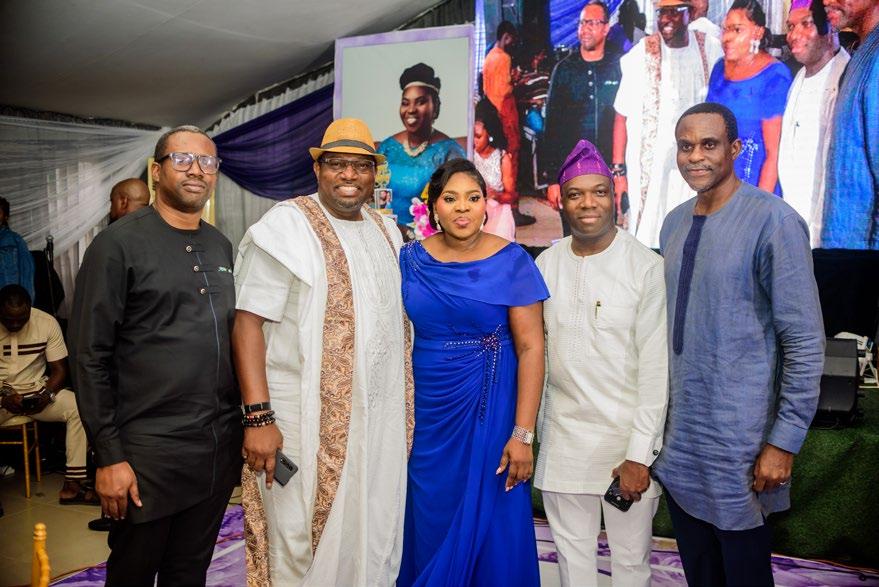
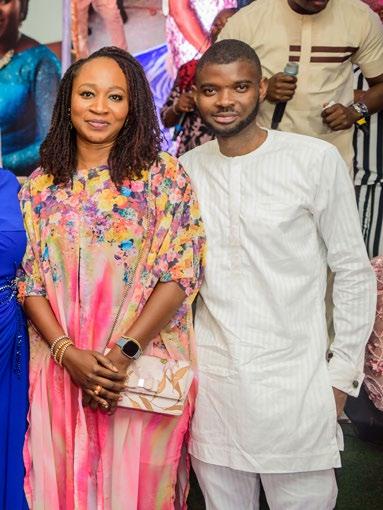
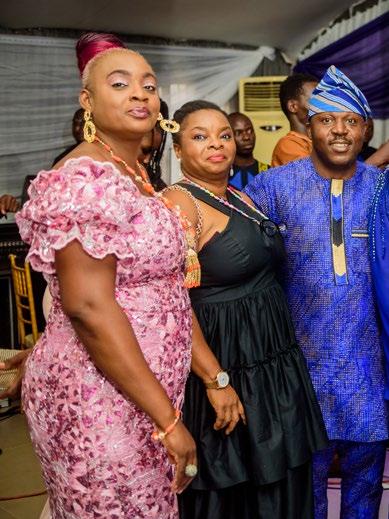
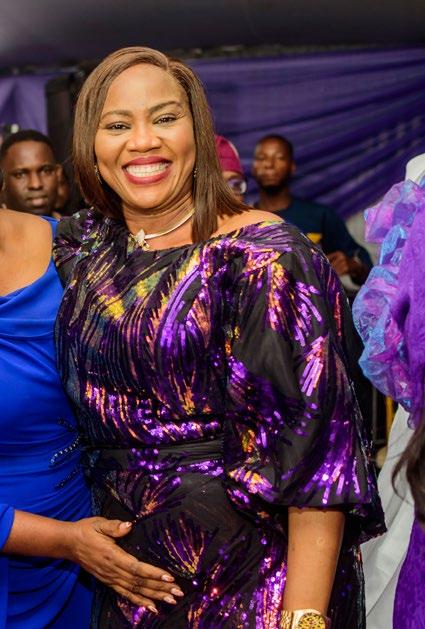
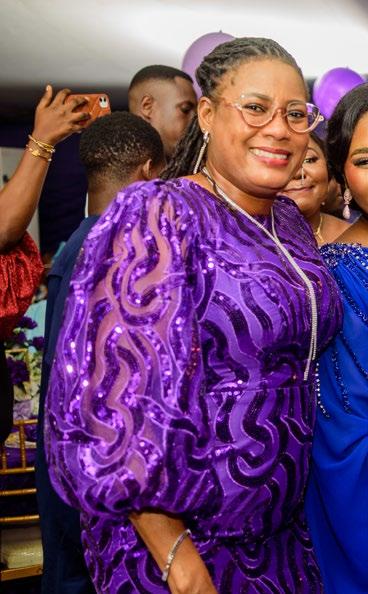

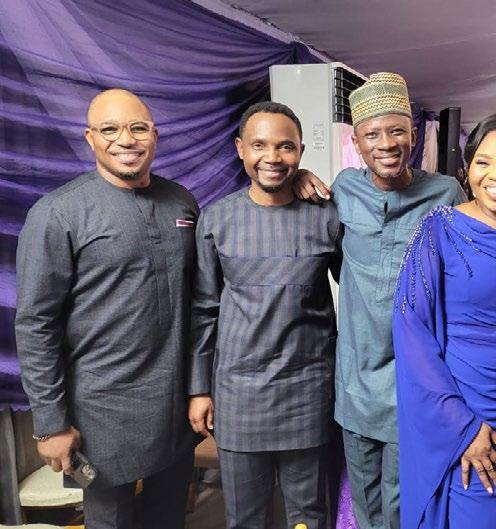
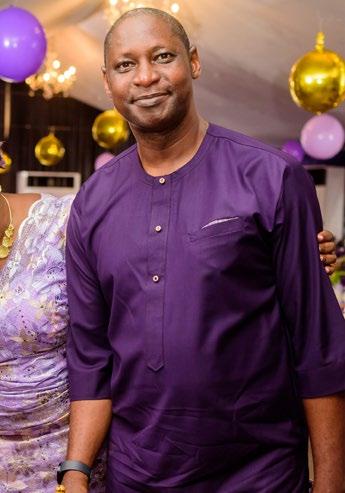
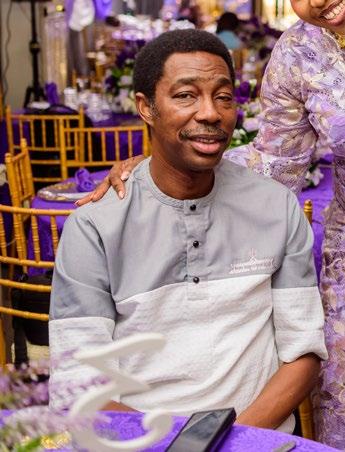
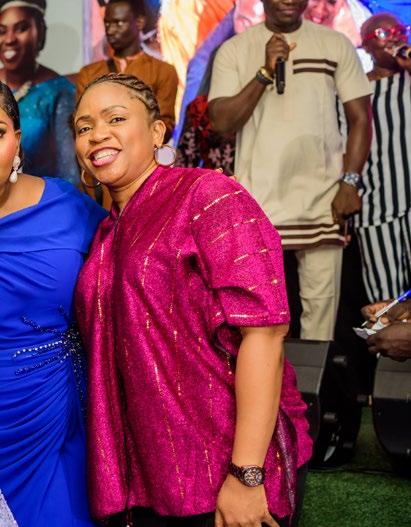
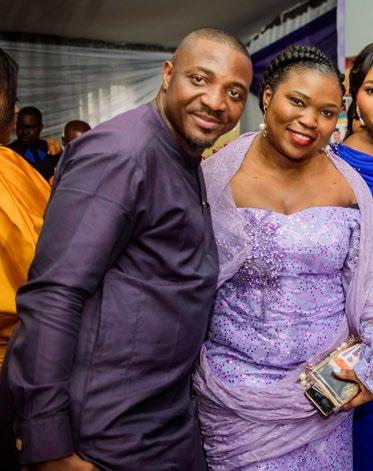
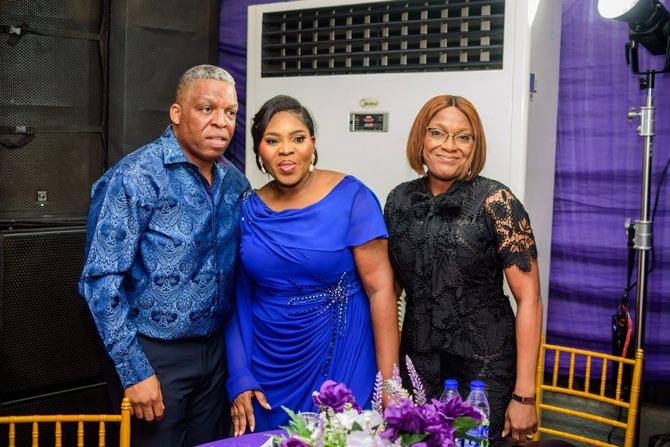
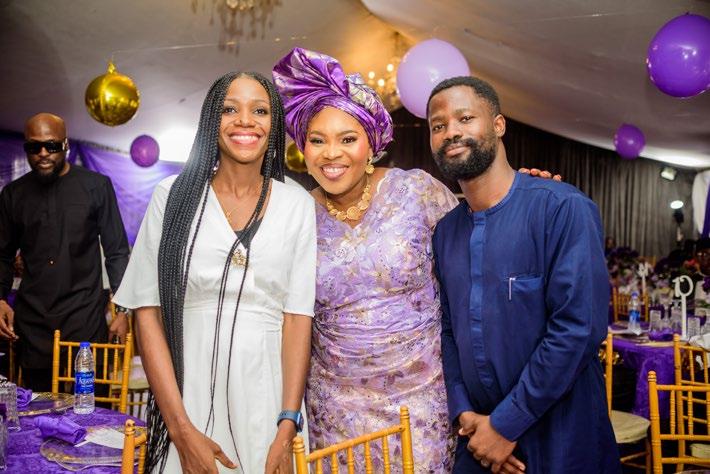
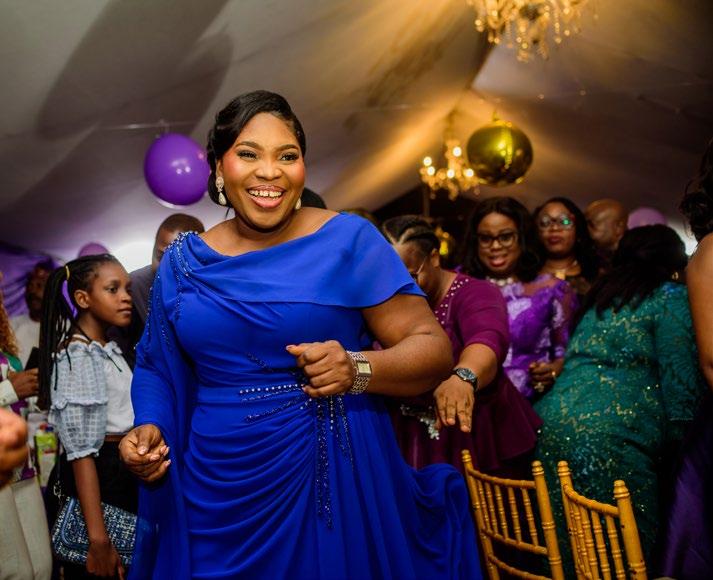
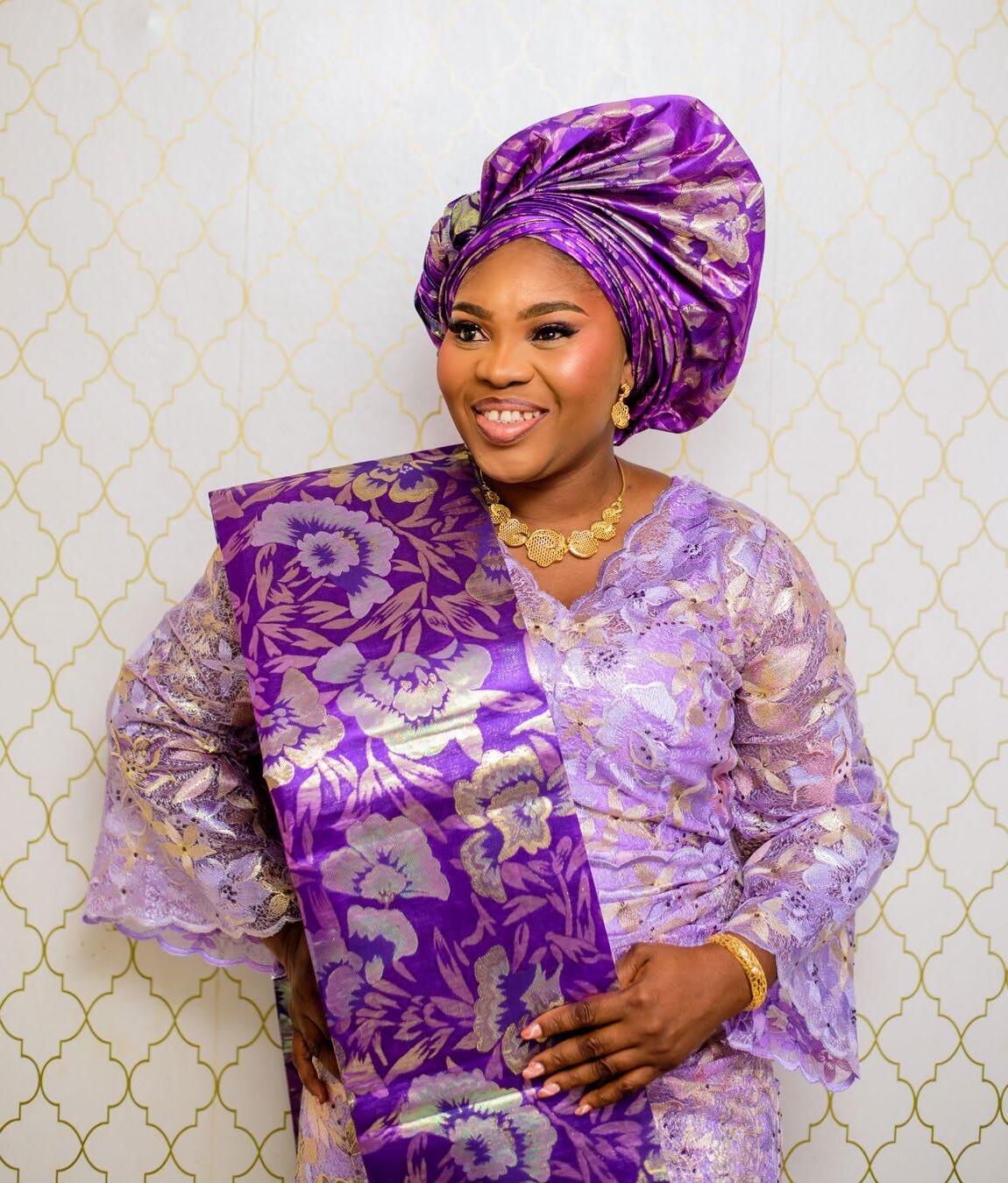
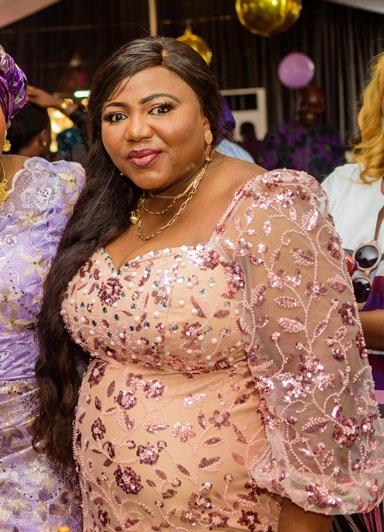
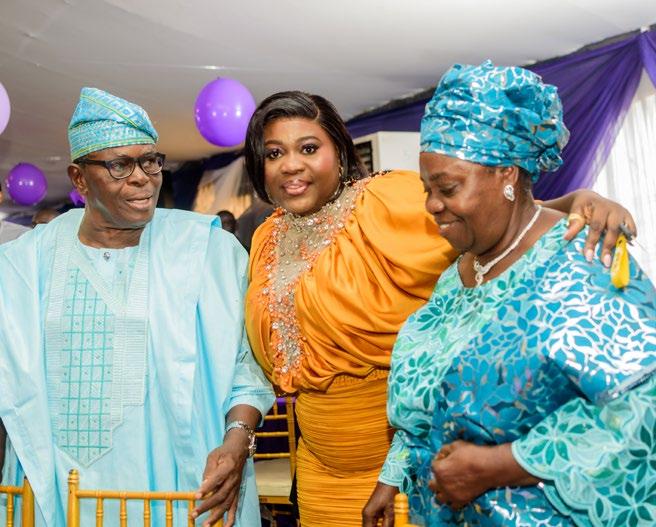
PAGE 15 THEWILL DOWNTOWN • www.thewilldowntown.com VOL 3 NO. 20 • MAY 14 - MAY 20, 2023
Steve Babakeko(MD X3M ideas)
Funke Fajusigbe (MD Auxilia Media)
THE SCENE DOWNTOWN
Dr Omotola Elatuyi
Angela Idiaake, Bukola Akinpelu, Chris Towoju Toluleke Salu, Kayode Temenu
Akintunde Maarinho (MD Utopia ltd), Dr Omotola, Tola Obi (MD Interactive Ltd)
Toyin Abraham, Dr Omotola and Enioluwa Adeoluwa
Ibukun and Samuel Ajiboye (MB Alpha and Jam Limited), Dr Omotola
Kenny and Simi Salami (MD Ideas House)
Victor Afolabi (MD Hazon Holdings), Solape Akinpelu (MD Hervest)
Tutu Afolabi (MD Wellness HMO)
Tunde Adewale, Teju Oyelakin, Bunmi Davies
Lolu Omosebi
Ojobor Gbubemi (Imanse)
George Onukwu (Account Director,TBWA), Tola Bademosi (MD BD Consult), Dr Omotola, Dotun Babatunde, Kelechi Nwosu (MD TBWA)
Rev Azuka Ogbolumani (chaplain University of Lagos) Mr Taiwo Adeniyi (MD, Vitafoam Plc)
Dr Olusola Falaiye (MD Akfar prints)
Dr Folake Olowokudejo (Dean, Unilag Business School)
Akintunde Marinho (MD Utopia Limited), Ikechukwu
Dr Omotola, Mrs Adegoke (MD TK Greenfield Caaterers)
Samuel Ajboye (Alpha & Jam), Tiwalola Olanubi (Dottsmedia House), Biodun Ajiborode (Brand Management Academy)
Segun Ogunleye (GM Pepsi), Toyin Abraham, Enioluwa Adeoluwa
BY BOLUWATIFE ADESINA

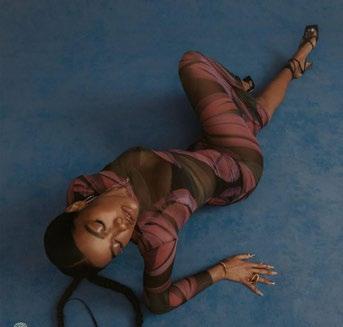

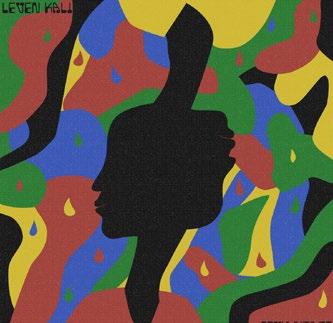

MOVIE REVIEW:

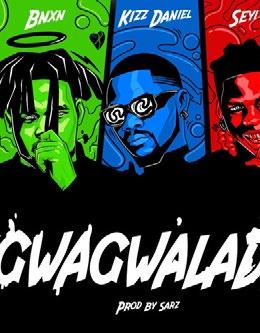
The Pope’s Exorcist
guilt, and in this universe, guilt, or, rather, sin, is what the devil feeds on.

Enter Father Amorth, tootling around Europe on a motor scooter, guzzling whiskey from a flask, and perhaps having more fun than an exorcist should be allowed. Before getting down to business in Spain, Amorth is dressed down by a snivelling young Cardinal (Ryan O’Grady) who places little stock in supernatural mumbo jumbo. But Amorth knows better. Enlisting the help of a young Spanish priest, Father Esquibel (Daniel Zovatto), the pope’s exorcist knows immediately that he’s up against a worthy Adversary.
The Pope’s Exorcist can feel chintzy and derivative, its lack of budget evident in its threadbare special effects. But it has a few things going for it.
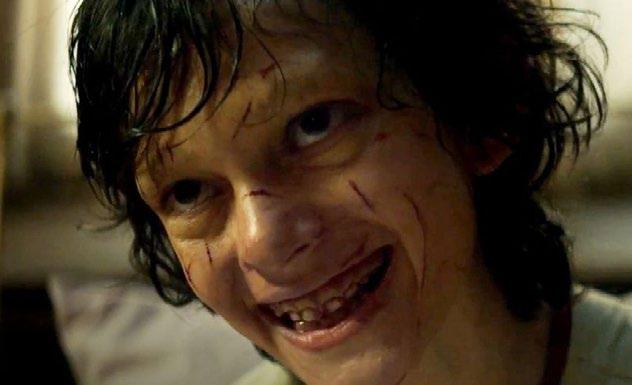
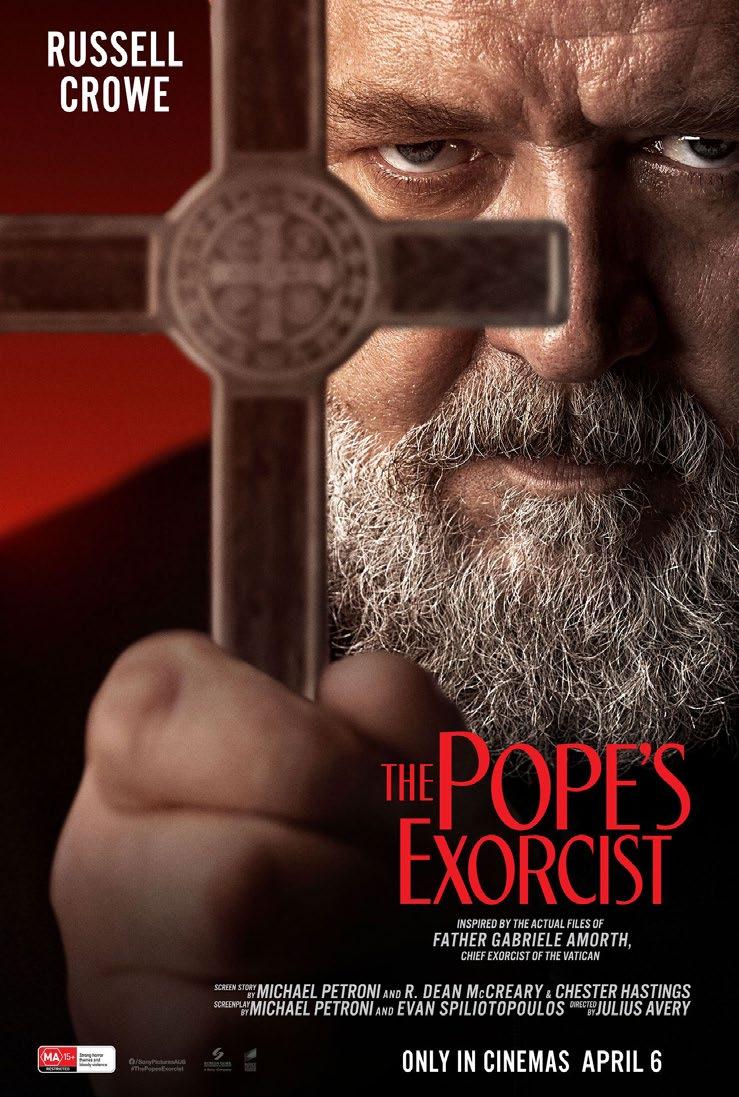
Spinning
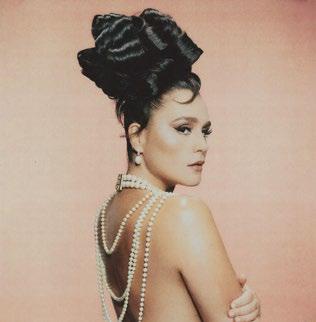
heads, seared flesh, holy incantations in Latin: could it be… Satan?
This year marks the 50th anniversary of The Exorcist, William Friedkin’s blockbusting, genretransforming horror landmark that has been parodied, sequelized (on multiple occasions), and firmly embedded in the collective cultural consciousness. And now along comes The Pope’s Exorcist, a passable little supernatural horror spectacle starring a big, bearded Russell Crowe trying on an Italian accent as Father Gabriele Amorth, apparently a real-life exorcist of some renown.
Yes, there are real-life exorcists, and this was actually key to the impact of Friedkin’s film. He treated the gruesomeness with documentarylike veracity, creating the illusion that what you were seeing (or shielding your eyes from) was really happening. The Pope’s Exorcist tries to follow in these footsteps and occasionally even succeeds, playing with ideas of faith and doubt and belief, parsing the differences between mere psychological disturbance and, you know, possession. In the process, it also gets a little silly. Many, many satanic-possession movies have been made in those intervening 50 years, and they’ve supplied a lifetime of tropes and genre expectations. This movie uses a whole bunch of them, from the deep, gravelly voice of Satan to the telekinetic tossing of bodies around a room.
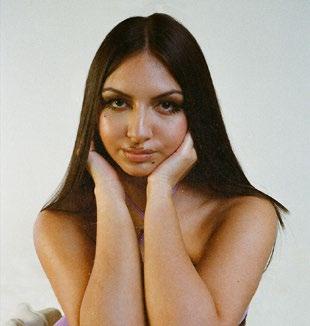
Which doesn’t mean they can’t keep trying. It’s 1987, and this time the dark lord’s victims are an American mom (Alex Essoe) and her two kids (Peter DesouzaFeighoney and Laurel Marsden), newlyarrived in Castille, Spain, to fix up and flip an old abbey that belonged to the family of her late husband. They carry baggage — husband/dad died in a grisly car accident a year ago, and the son, Henry, hasn’t spoken since. He is weighed down by



Director Julius Avery knows his way around the visual grammar of horror, the shocks and cuts and the camera work that add up to fear. Crowe brings an imposing physicality and winking charm to go with Amorth’s gravity, although it’s still hard to fathom how an actor who won one Oscar (for Gladiator) and could have easily won two more ended up here. Perhaps most surprising: The Pope’s Exorcist has some actual ideas in its head. Both priests have regrets and skeletons in their closets, sizable burdens of which the demon is well aware. So does the Catholic Church. We’re not talking sexual abuse; the movie gets into the sins of the Spanish Inquisition, a seismic, centuries-long wrong. The conspiracy at the heart of The Pope’s Exorcist is a bit amorphous, a little too illuminati, but it manages to connect just well enough with the horrors at hand.
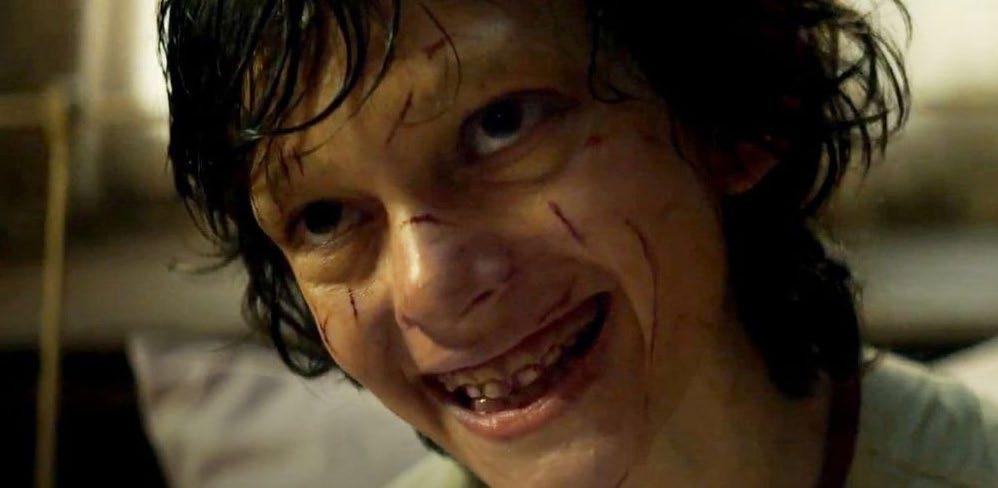
The International Association of Exorcists has slammed the movie as “unreliable,” and the coolest thing about this is that there exists an International Association of Exorcists. This fact gets back to that frisson that drove the original Exorcist, and, to a much lesser extent, The Pope’s Exorcist. This, the movies try to suggest, could happen to you. And the realer something feels, the scarier it can get. The Pope’s Exorcist will certainly never go down as a classic of the genre, but it’s better than it has any reason to be. Sometimes, the devil you know, gets the job done just fine.


Rating: 6/10
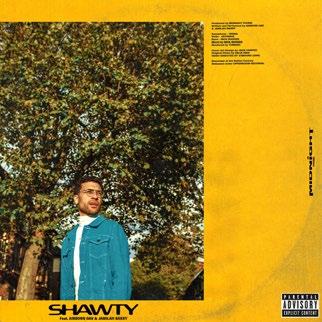
WATCH OF THE WEEK
WEEK STAR WARS: VISIONS VOL. 2
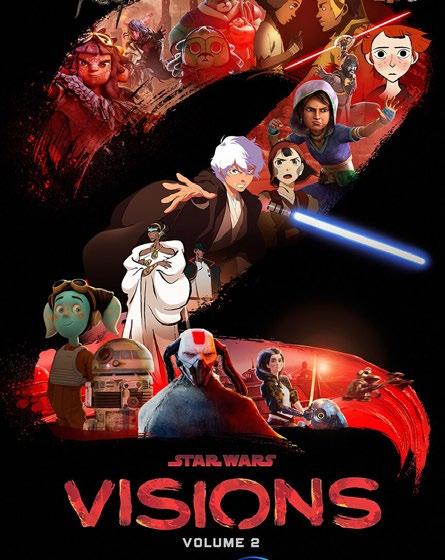
Forall of its constant additions, the Star Wars universe can feel like it’s getting smaller; with a few notable exceptions, there can be diminishing returns in the same corners of the galaxy. Star Wars: Visions is a muchneeded remedy: expansive not just through its one-off, canon-adjacent stories but also how each standalone short brings with it the quirks and characteristics of the animation studio producing. After an excellent first season comprised entirely of anime, the second broadens its focus, pulling in international animation houses working across a variety of mediums. It even feels more urgent, as many of the studios find real-world analogues for their depictions of life under forced occupation, blending their own cultures with the franchise.
One compelling example is In The Stars, an innovative use of CG animation styled to resemble stop-motion, from Chile-based studio PunkRobot, telling the story of an indigenous population fighting an Imperial resource grab. For Studio La Cachette’s The Spy Dance, Imperial rule looks like the Nazi takeover of France. Set in a theatre where the performers are secretly Rebels, their graceful movements and dynamic character poses disguise hidden anguish and pointed rage at the Empire. This kaleidoscopic anthology, for the most part, makes Star Wars feel new again. The haunting Screecher’s Reach — a standout of the season, produced by Ireland’s Cartoon Saloon — follows a group of kids escaping
a Dickensian workhouse, pursuing stories of a ghost up in the hills, the episode going to unexpectedly horrifying places.

The anthology format also allows for light-hearted stories: I Am Your Mother, from Bristol’s Aardman, is low-stakes, expectedly eccentric and sweet, and full of the studio’s patented, clever chaos and visual gags. Another highlight, South African studio Triggerfish’s Aau’s Song, is a richly coloured children’s fable with gorgeous nods to Ndebele dress folded in with the felt textures of its
characters. It’s a delight to see new cultural inflexions in this universe, not just in its anti-colonial allegories but also in how some soundtracks work with traditional instruments from the studios’ home countries. Even weaker links have something to offer: the striking colour design of Spanish studio El Guiri’s Sith elevates a fairly standard story. If there’s any one unifying issue, it’s minor notes of repetition, present also in Volume 1. Every short is distinctive, but there are moments of narrative overlap: backto-back films pose questions about the mining of kyber crystals, and there are not one but three instances of young girls separated from their family to become an apprentice. Such moments can make Visions feel less curated, but they are brief. This kaleidoscopic anthology, for the most part, makes Star Wars feel new again, thrillingly reinterpreting its singular blend of fantasy and space opera. Though Star Wars: Visions can sometimes feel repetitive, those frustrations are minor versus the glorious idiosyncrasies of the... well, visionary work of the diverse animators here.
this with your camera to access the playlist (Apple Music)
this with your
to access the playlist (Spotify)
Scan
Scan
camera
THEWILL DOWNTOWN • www.thewilldowntown.com VOL 3 NO. 20 • MAY 14 - MAY 20, 2023 PAGE 16
Jessie Ware - Pearls
Mysie - Over Time Amber Mark - Foreign Things BODUR; Bubba Janko - Watch Me
Leven Kali - LET IT RAIN MIDNIGHT PHUNK; Jamilah Barry; AirBorn Gav - Shawty
Austin Millz; Aluna - Gold Asake - 2:30
BNXN fka Buju; Kizz Daniel; Seyi VibezGWAGWALADA
Lil Wayne; Ty Dolla $ign; XXXTENTACION - Scared of the Dark (feat. XXXTENTACION)



















































































































